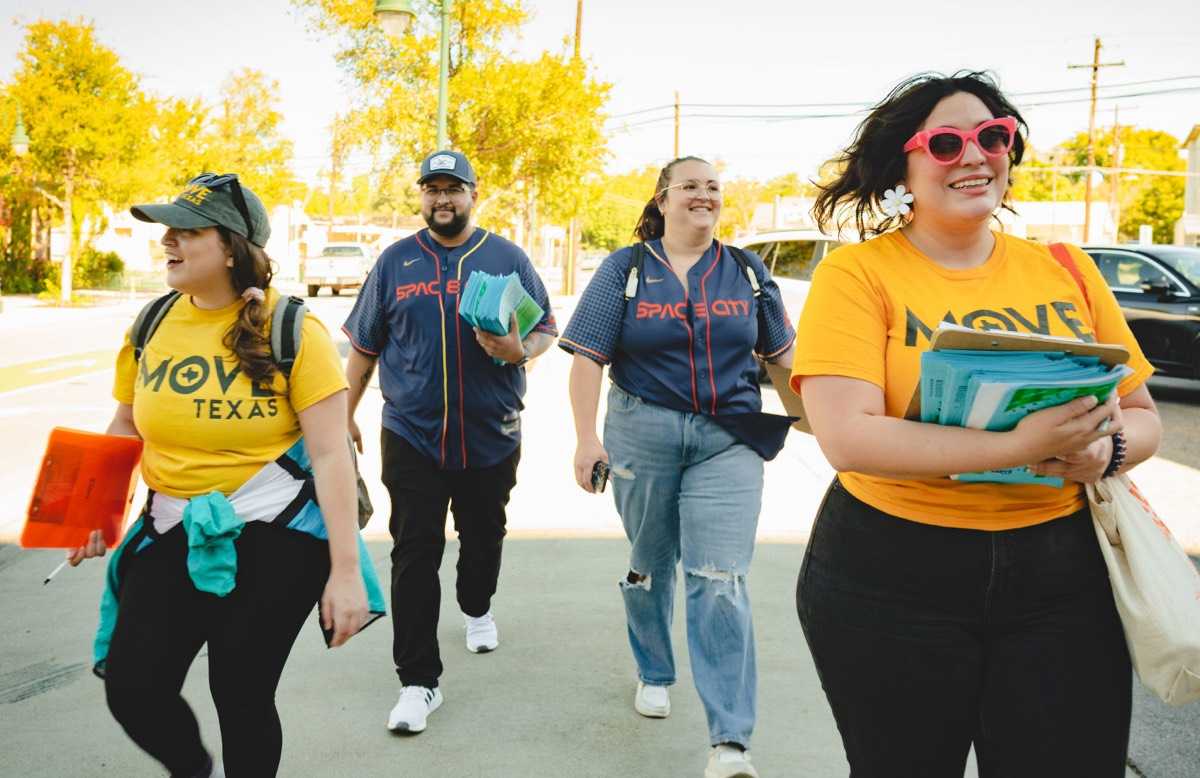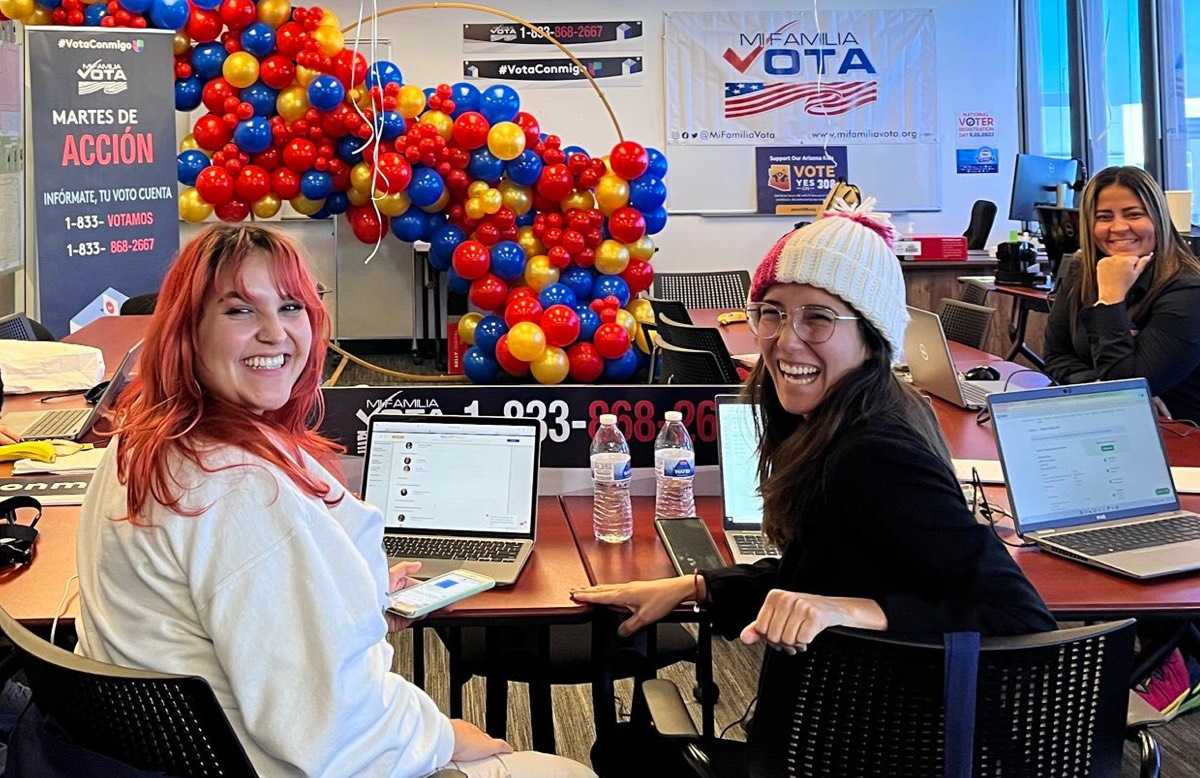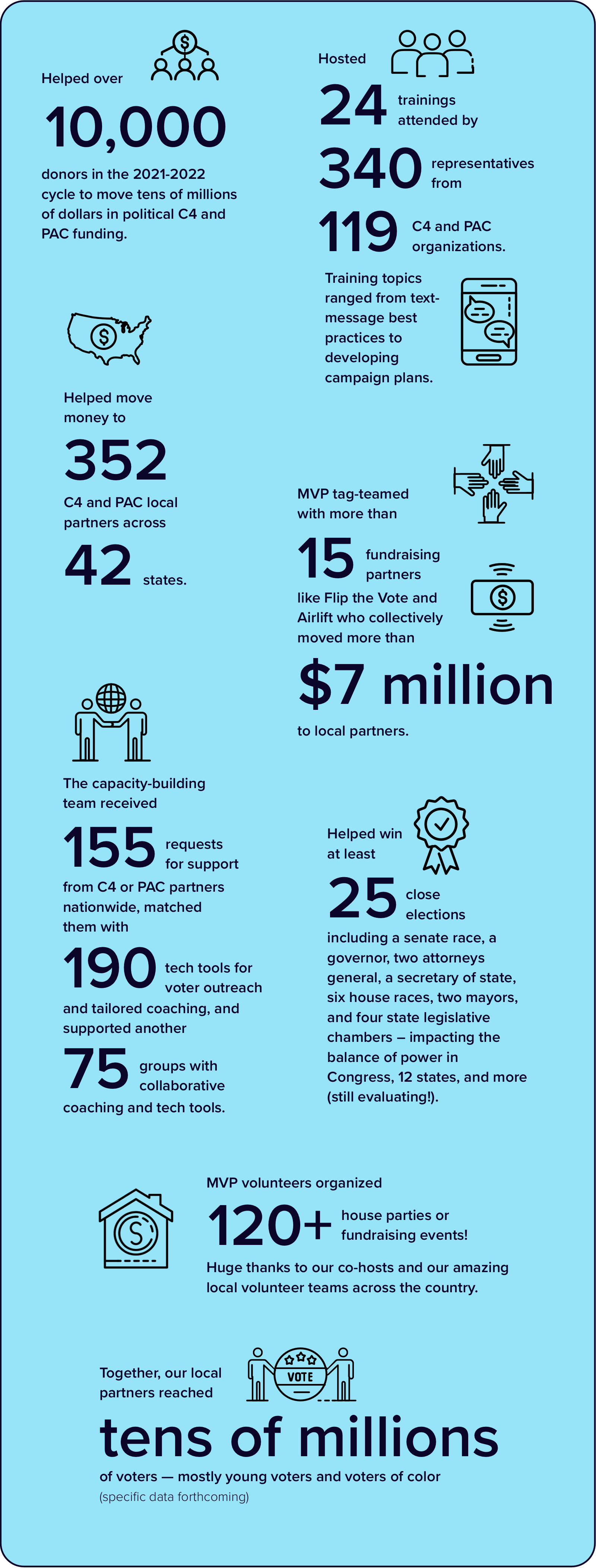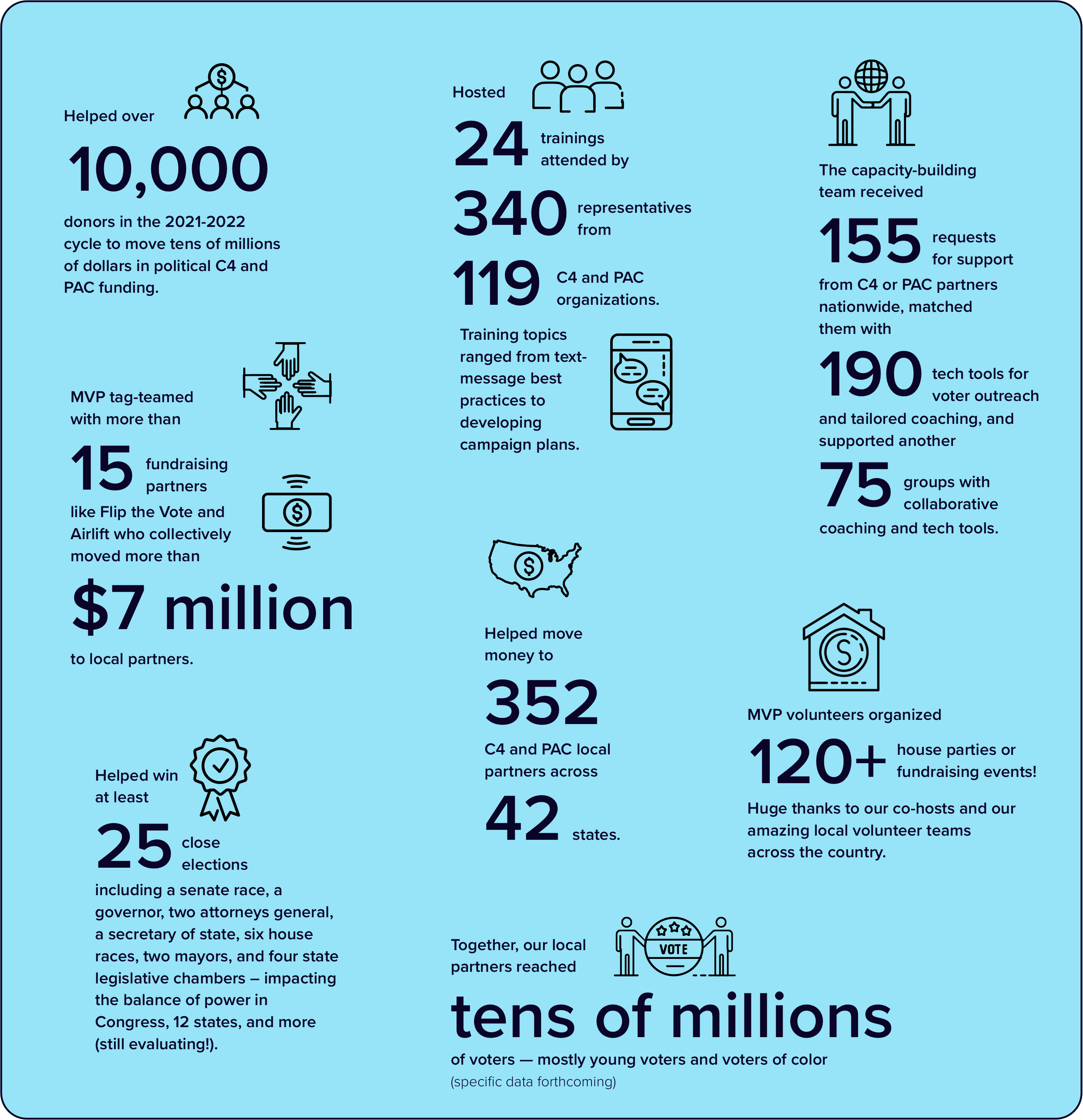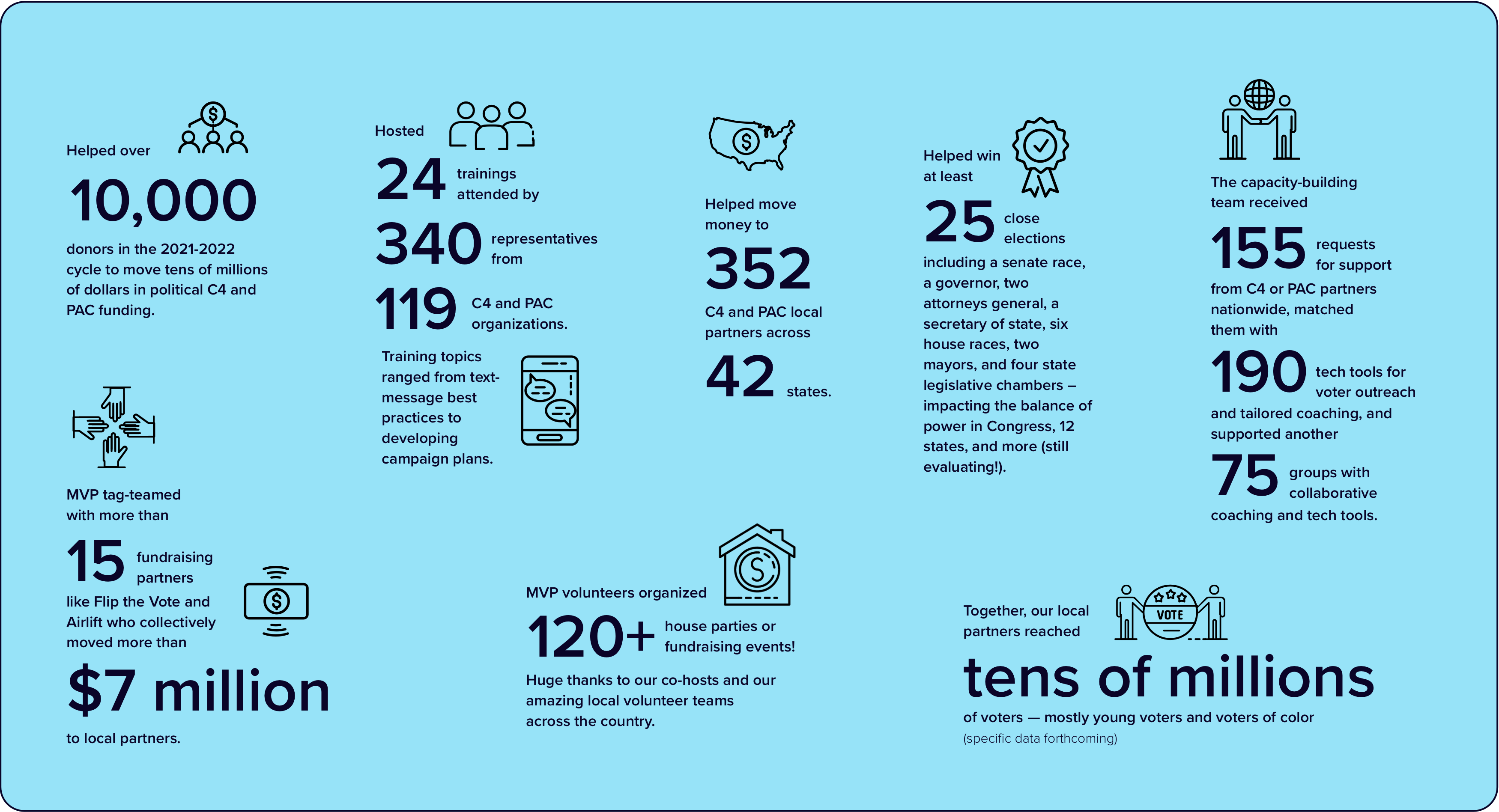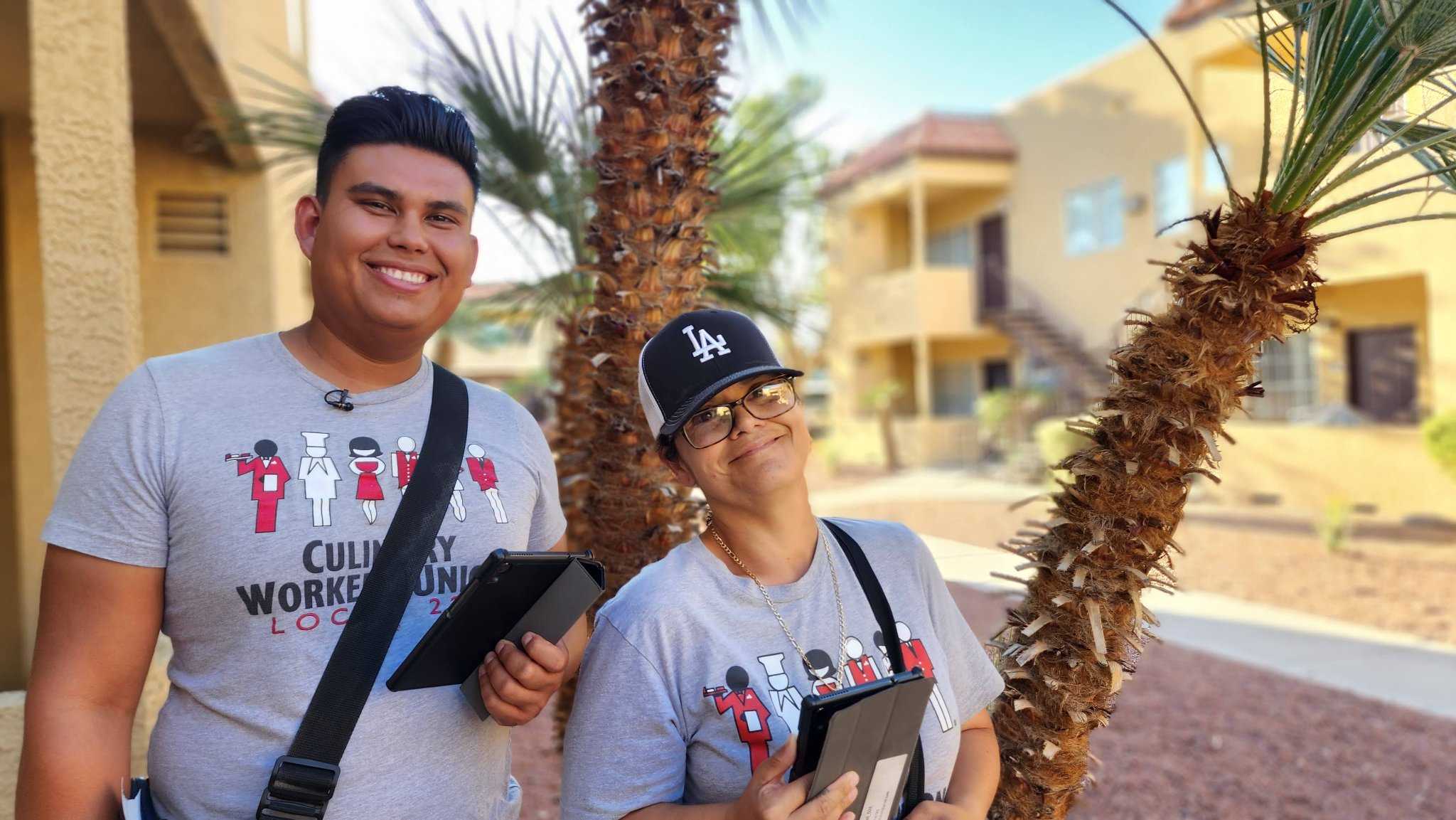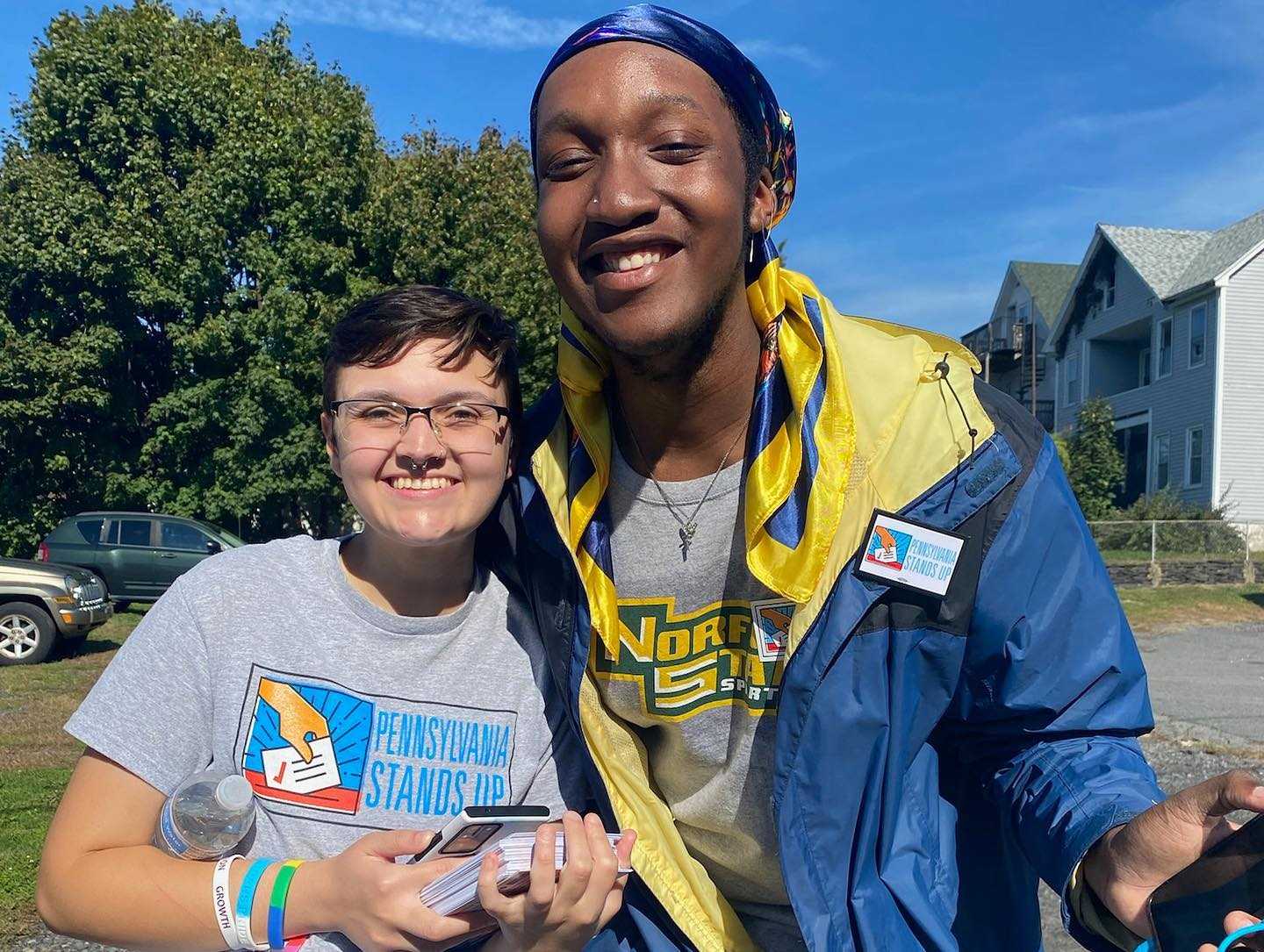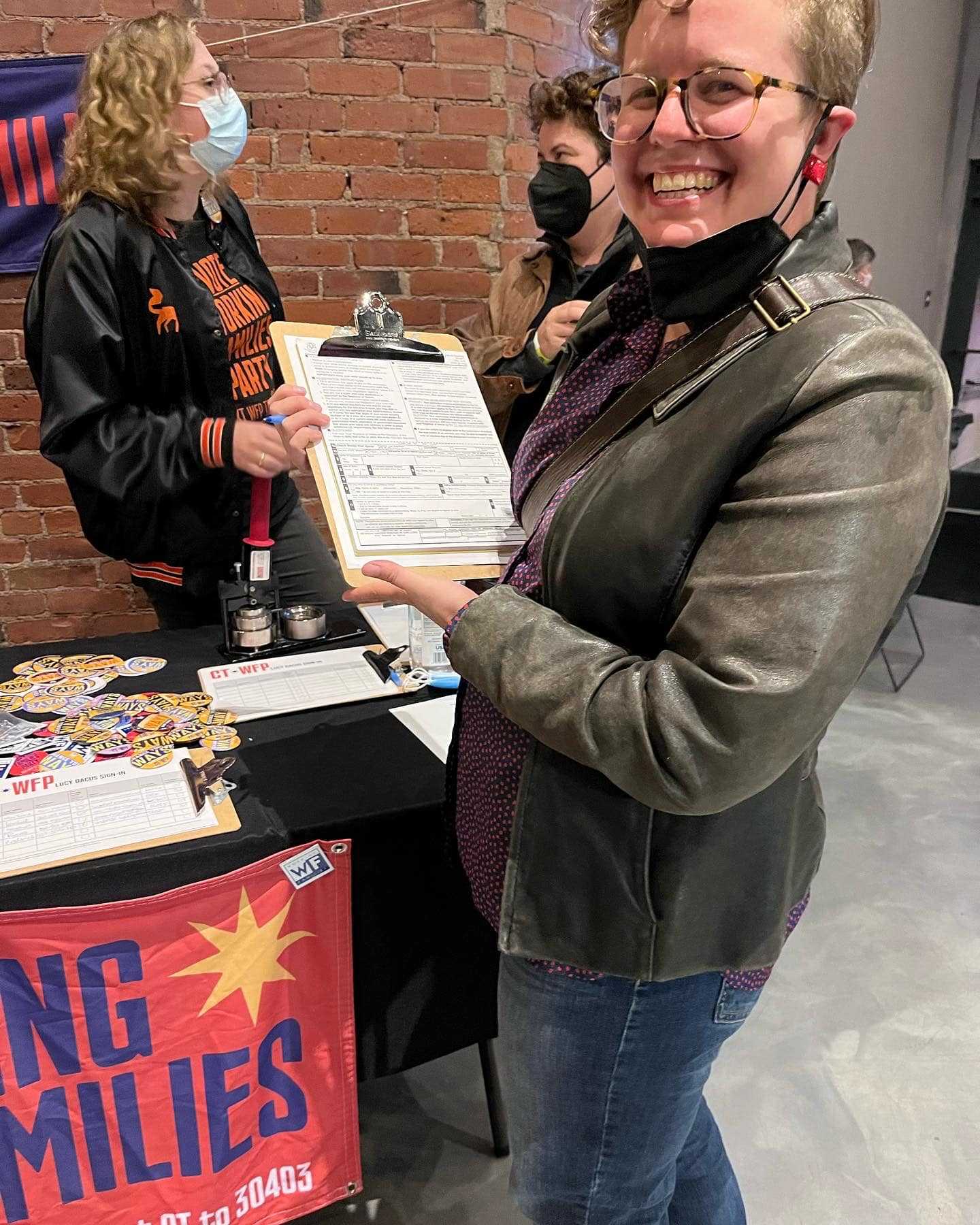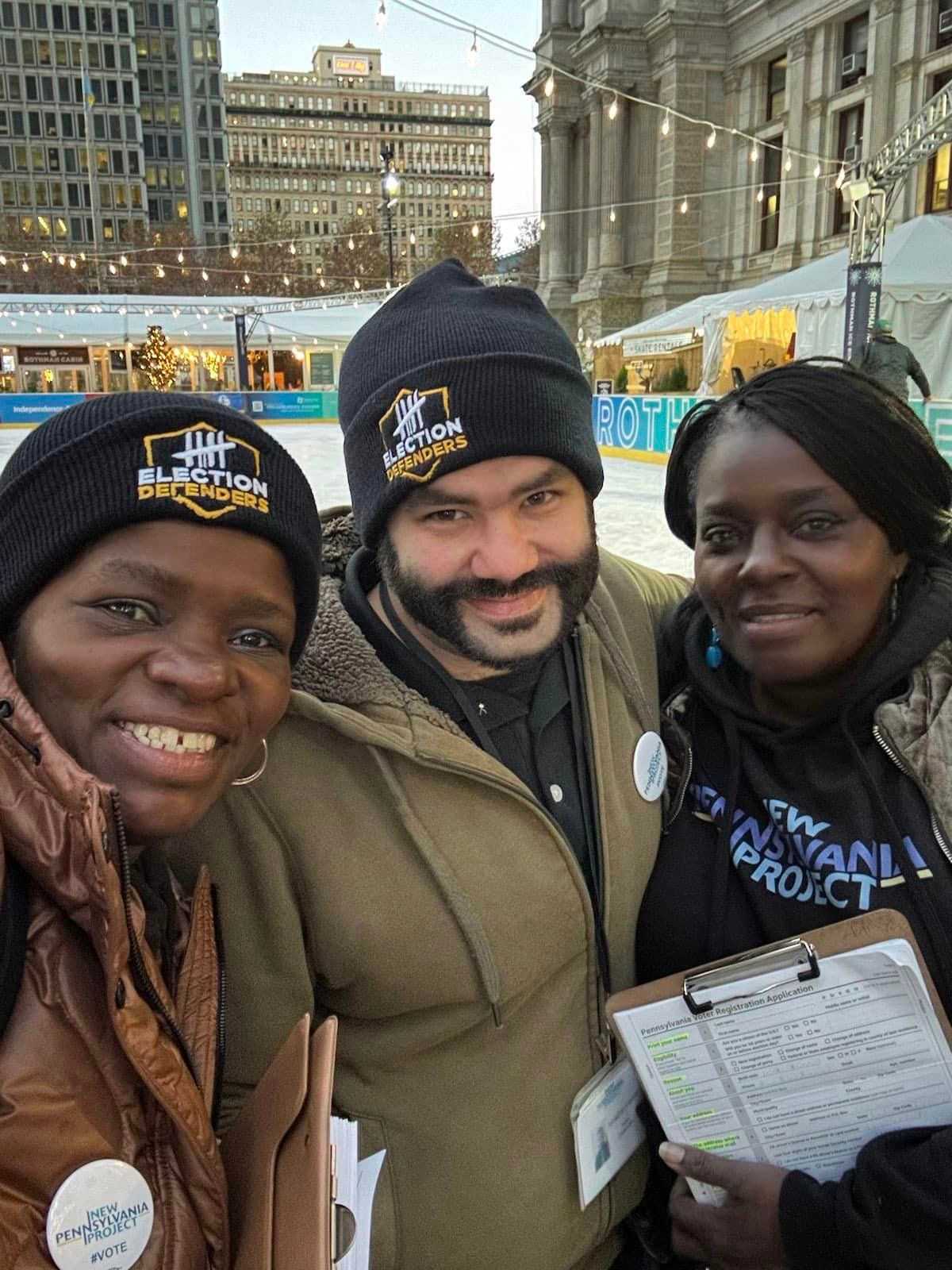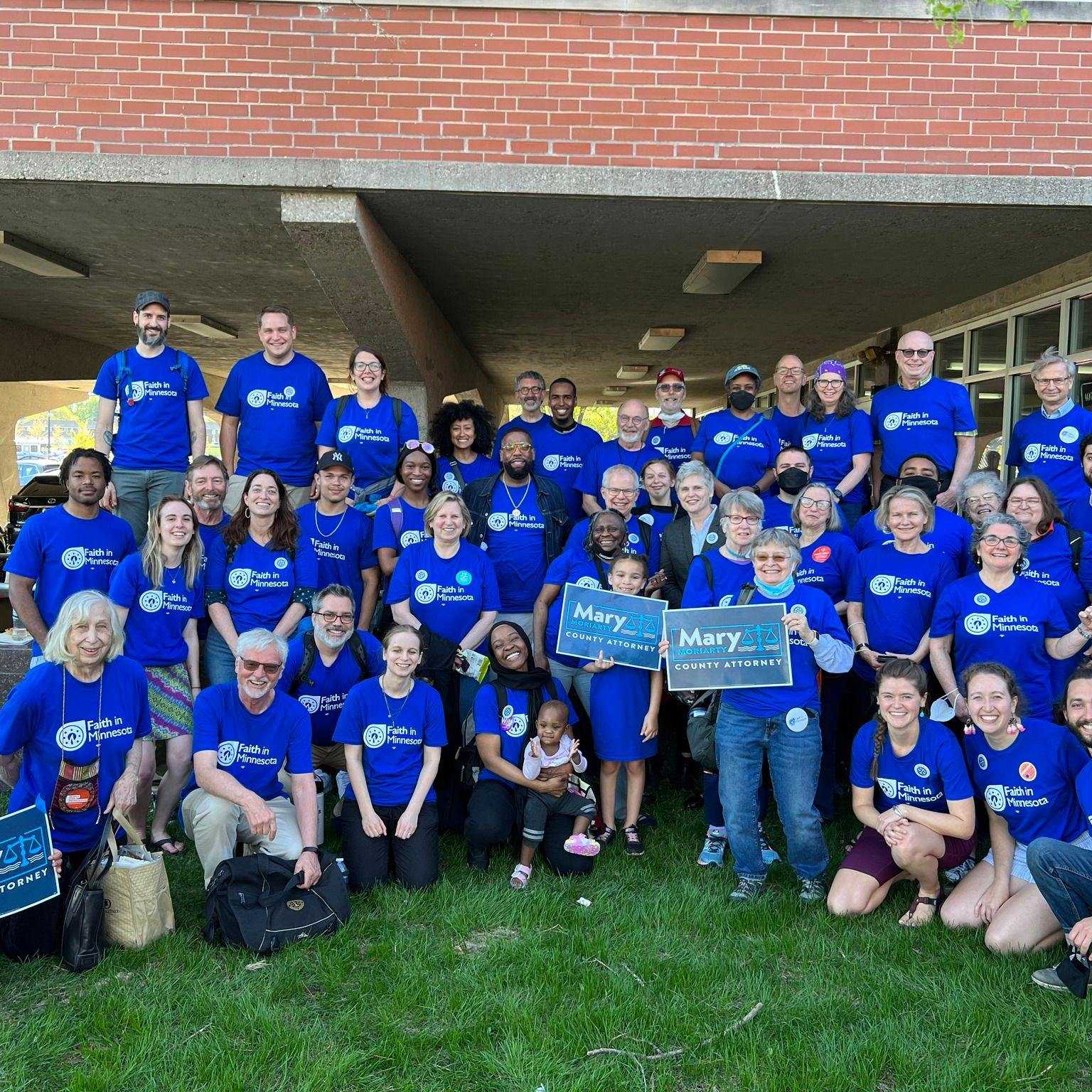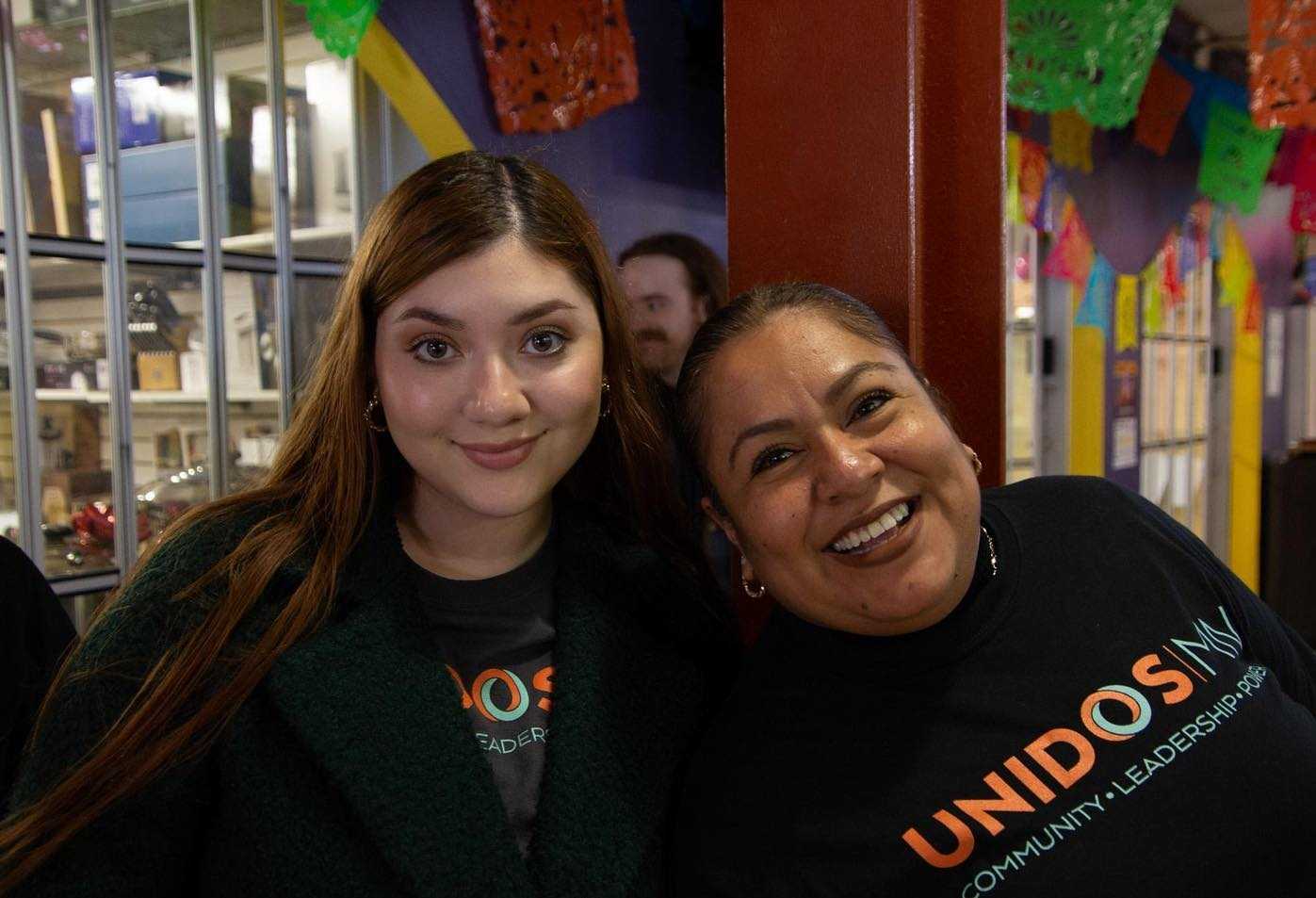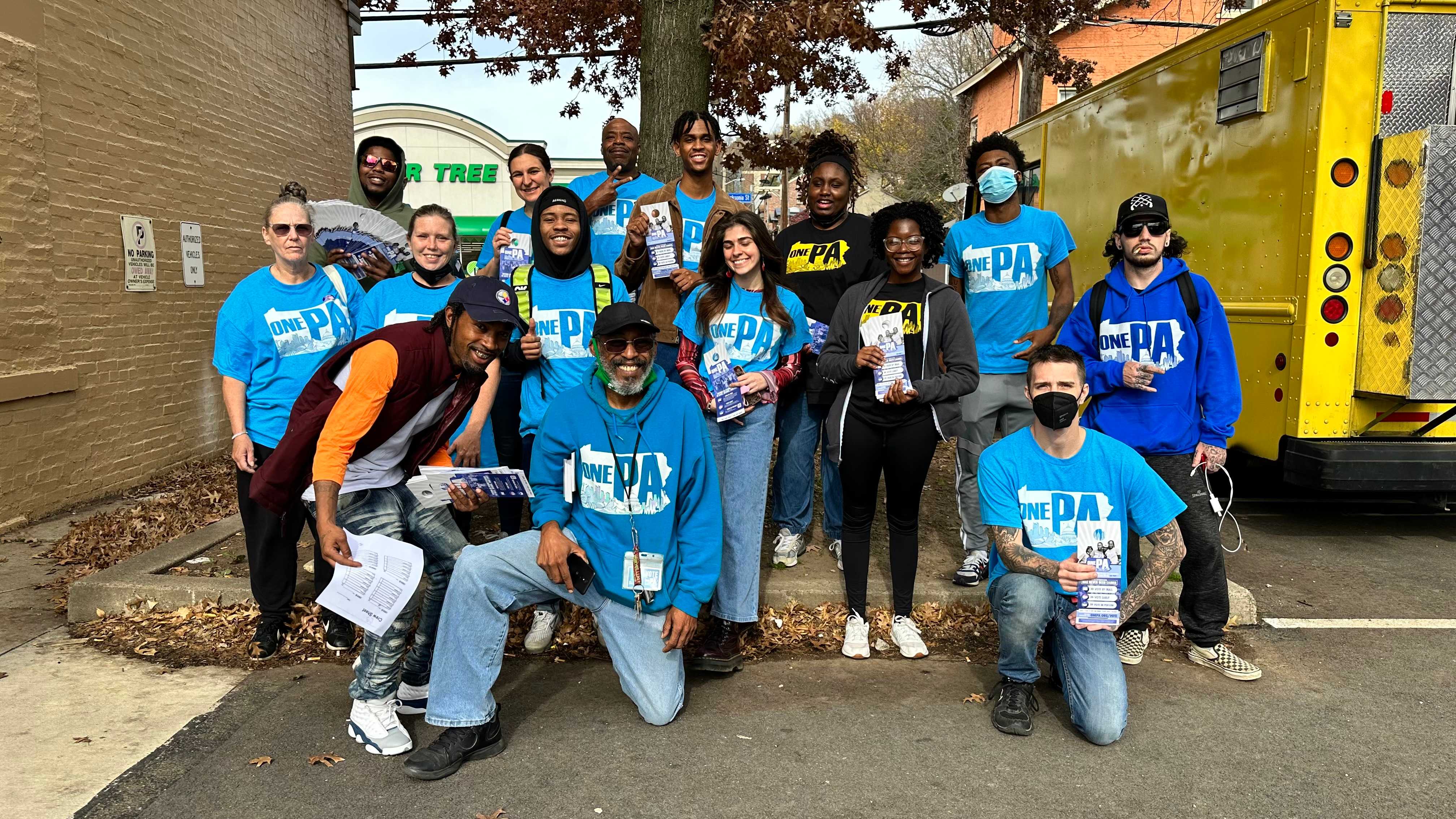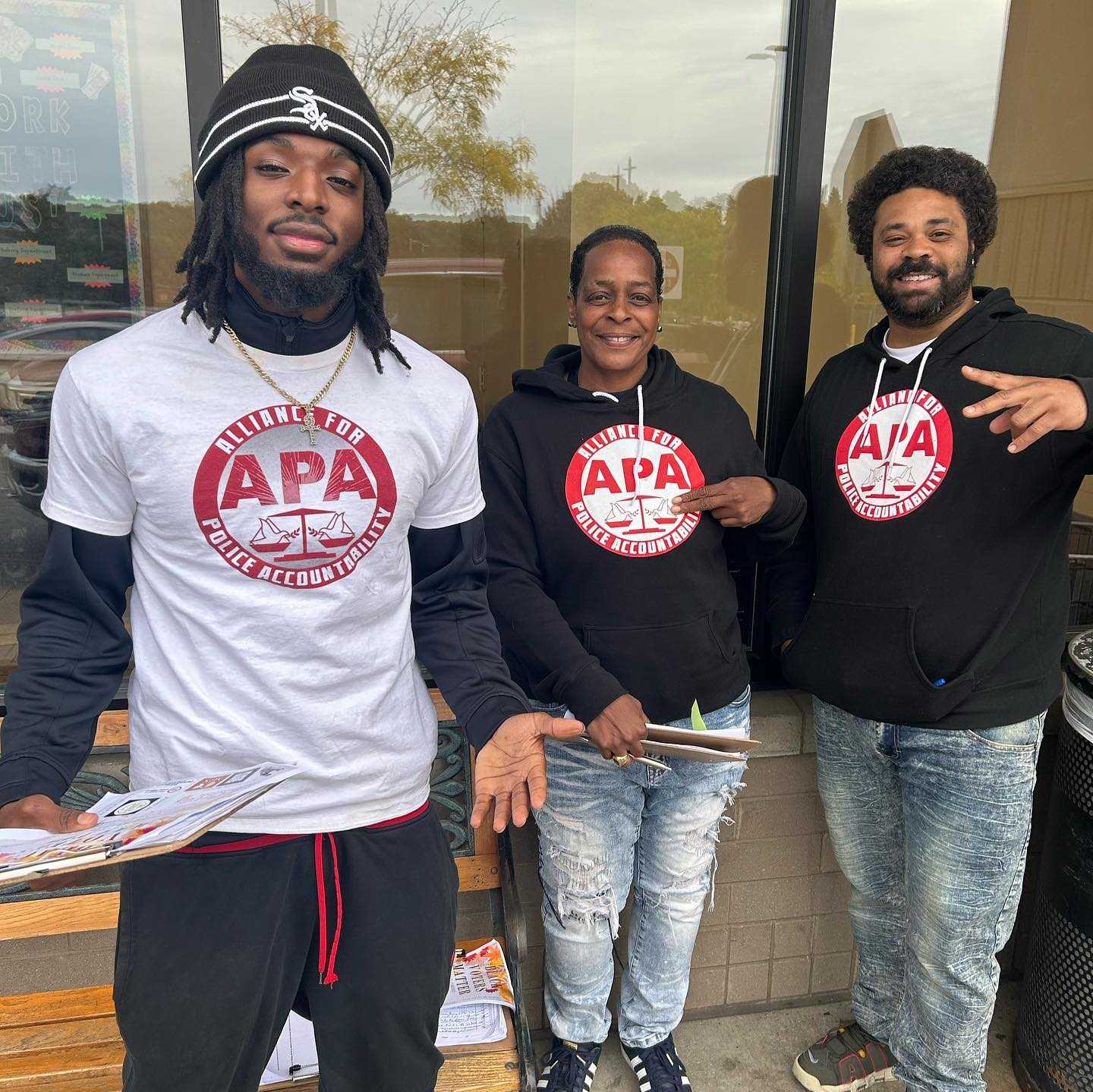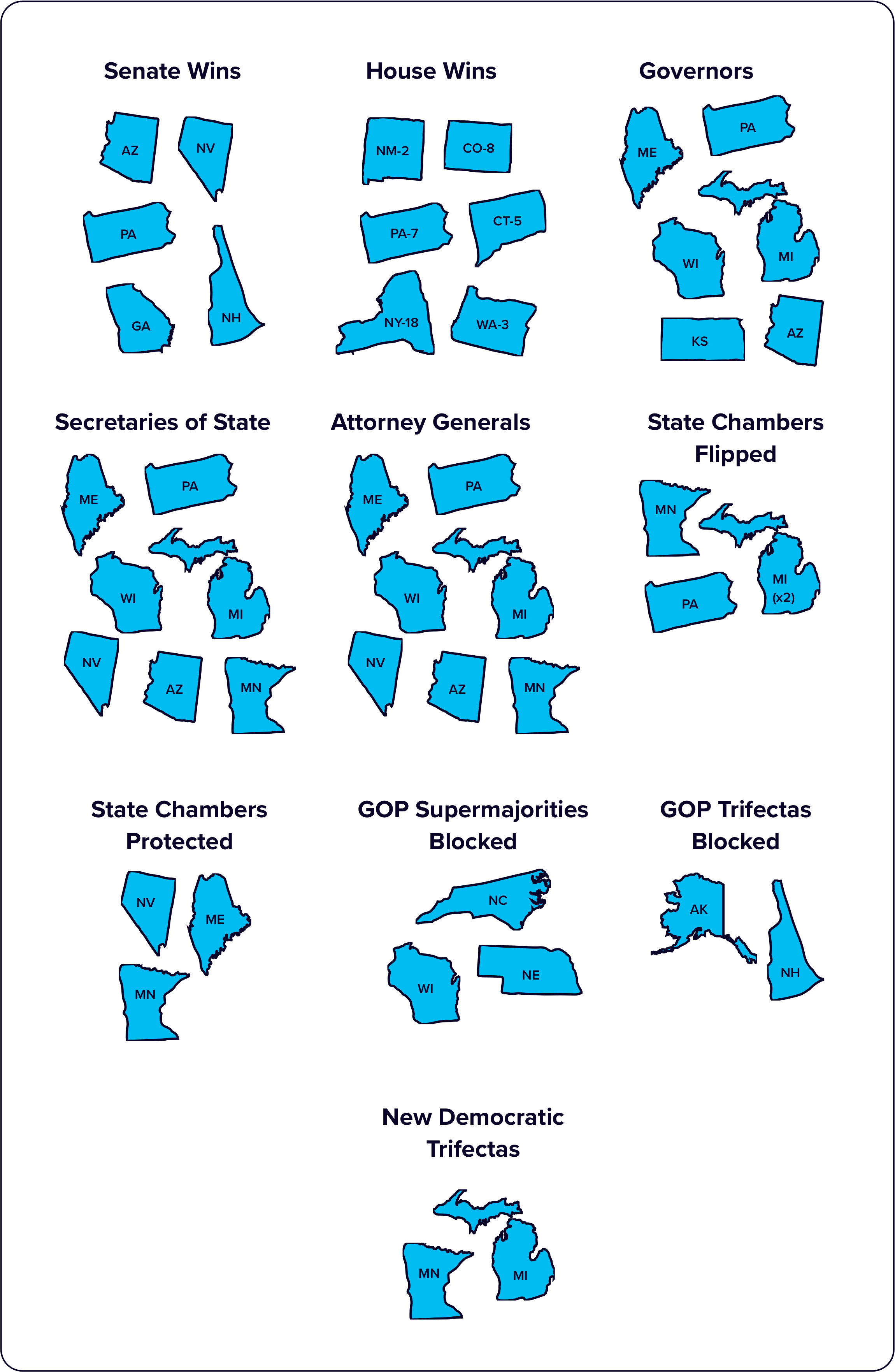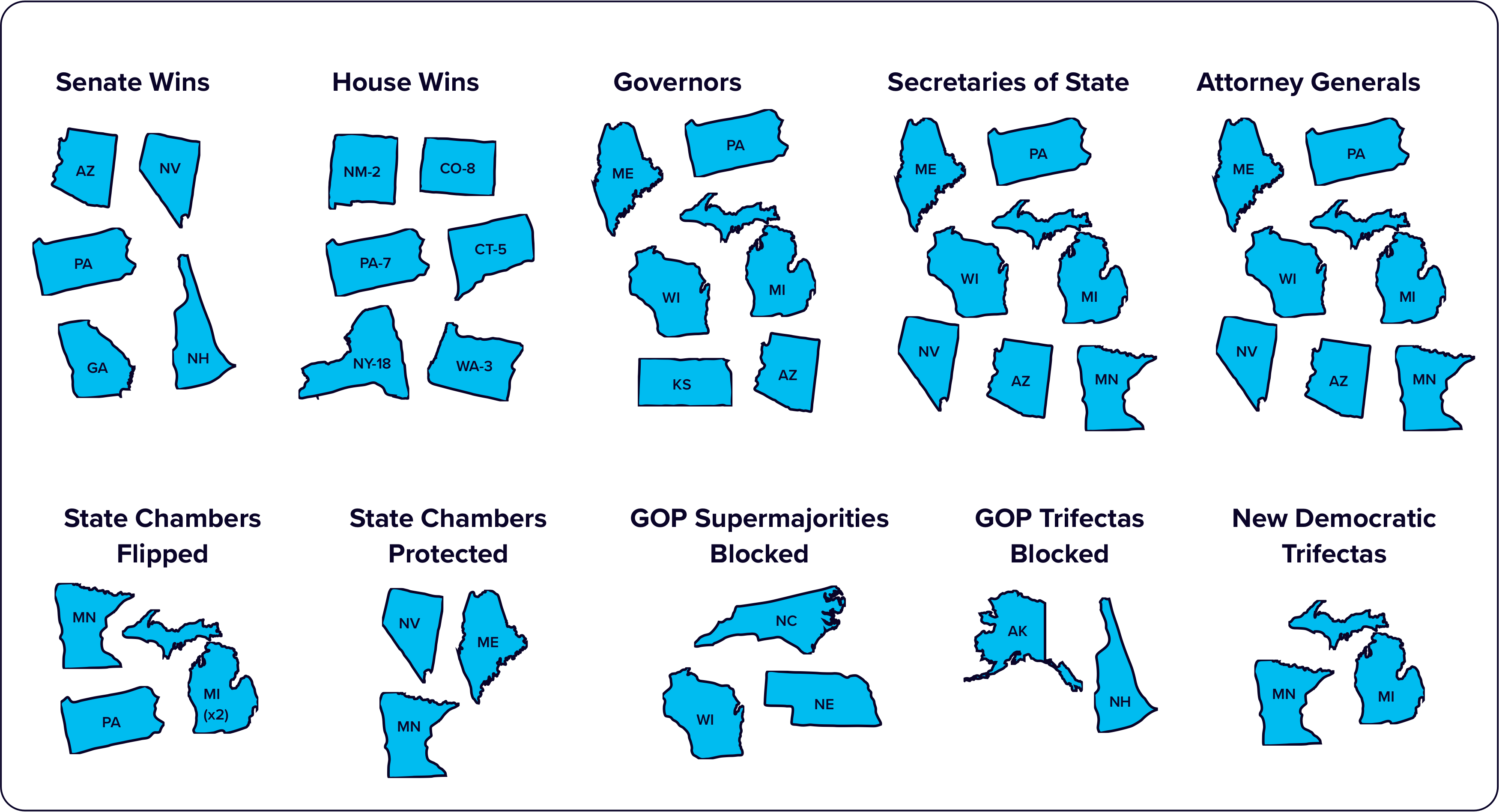How We Defied the Odds
What the Movement Won in 2022
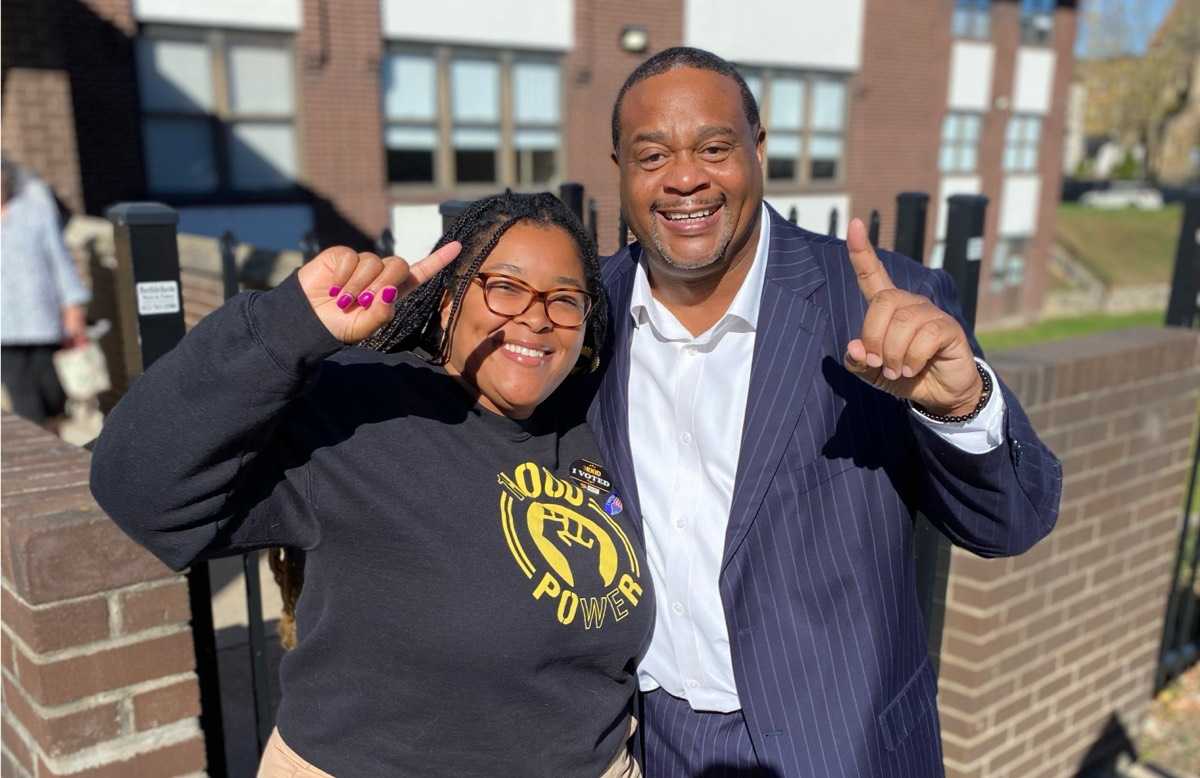
1HOOD Power
Back in November of 2021, with all the factors stacked against us, MVP boldly vowed to defy the odds in the 2022 midterms by moving unprecedented support to supercharge local voter organizing across critical states and districts. One year later, MVP’s hundreds of local partners did in fact defy the odds.
Before
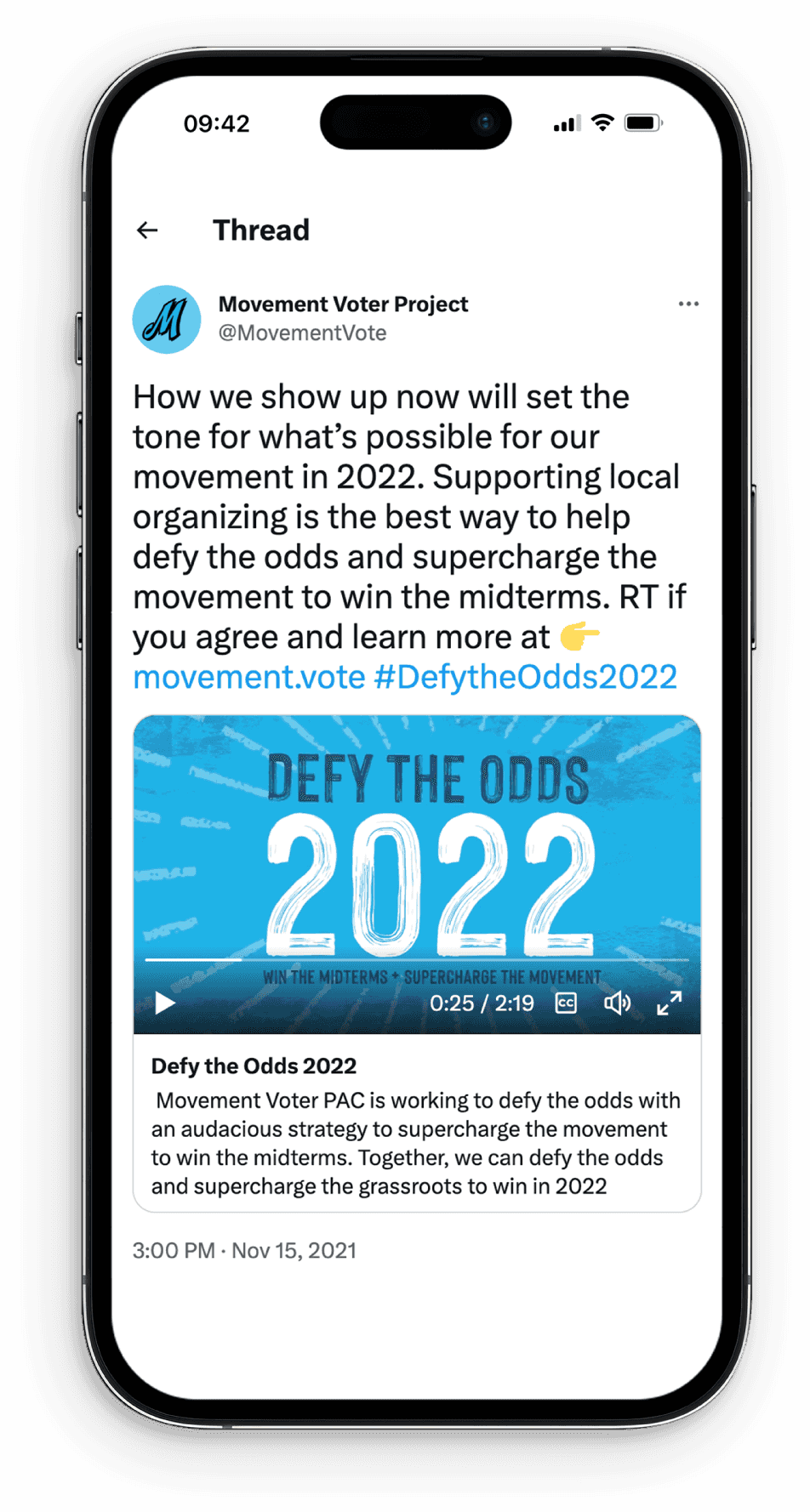
After
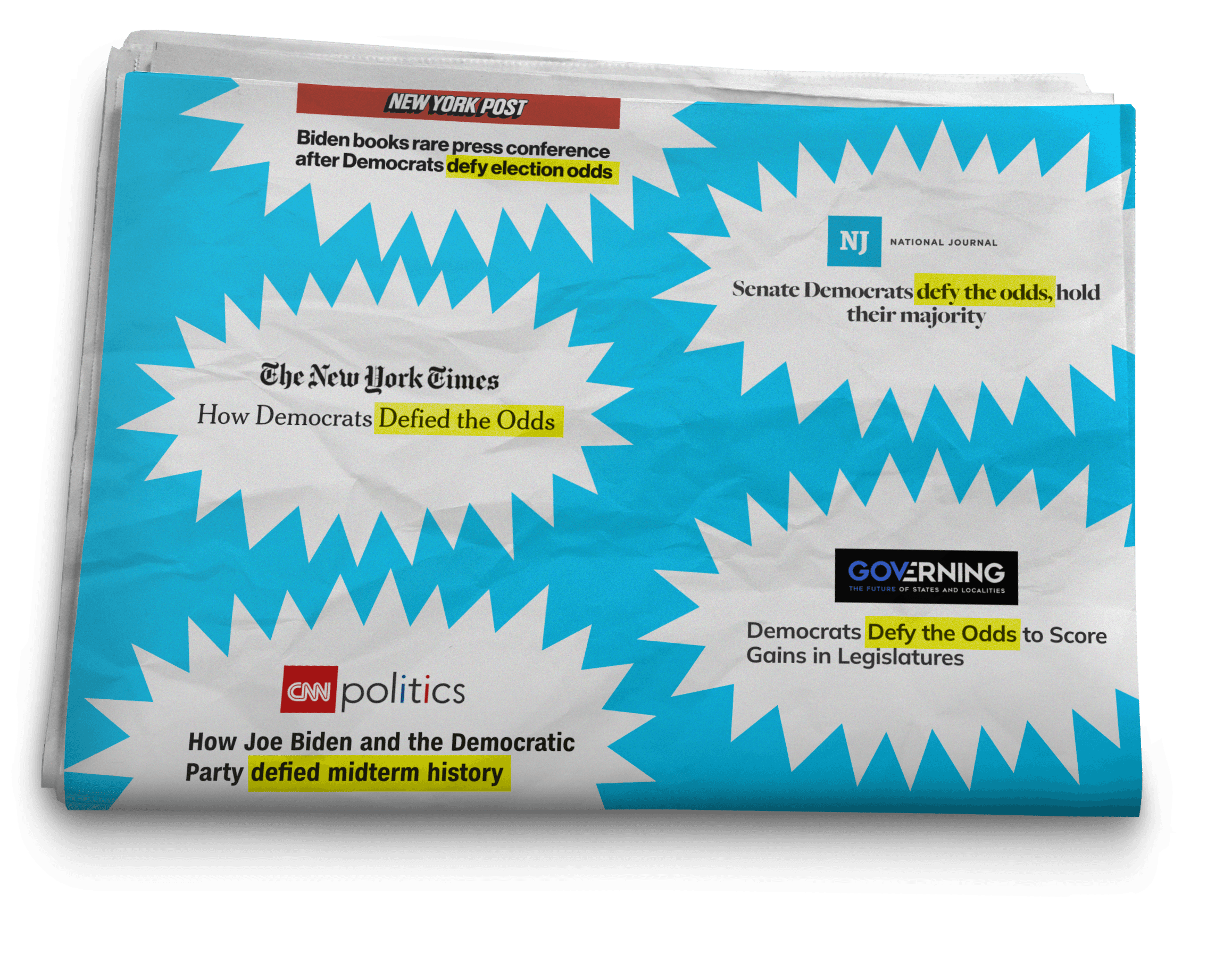
In short: We did it.
We didn’t win everything. But we definitely outperformed expectations – by a lot.
We picked up a seat in the Senate. We won six hotly contested races for Governor. We won seven Secretaries of State and Attorneys General, including appointed positions. We flipped four state chambers and quasi-flipped two more; secured two new democratic trifectas; blocked three GOP supermajorities, and won almost everything we could have realistically hoped to win at the state level to secure a fair election in 2024. We won abortion rights on the ballot in six states, plus a long list of ballot measures, local victories, movement-aligned candidates – and we came just five seats shy of saving the House of Representatives by 6,675 total votes.
We blocked the red wave, and we helped pass historic progressive federal policy on climate, economic fairness, drug prices, gun safety, health care, clean energy infrastructure, marriage equality, and student debt relief that will noticeably improve the lives of tens of millions of Americans. Because of our amazing victories, we are in a much better position to pass more good state and federal policies (and block bad ones) in 2023. And we’re in a much better position going into 2024 – which we’re already preparing for (see below). Overall, despite a handful of heart-breaking losses, we had an incredibly successful election cycle where we overcame extremely difficult circumstances. We have so much to celebrate!
How did we do it?
MVP by the Numbers

Top 25 Closest Elections We Won
Here are 25 of the closest and most consequential elections (and groups of elections) that MVP and our local partners are proud to have helped to narrowly win in this cycle.
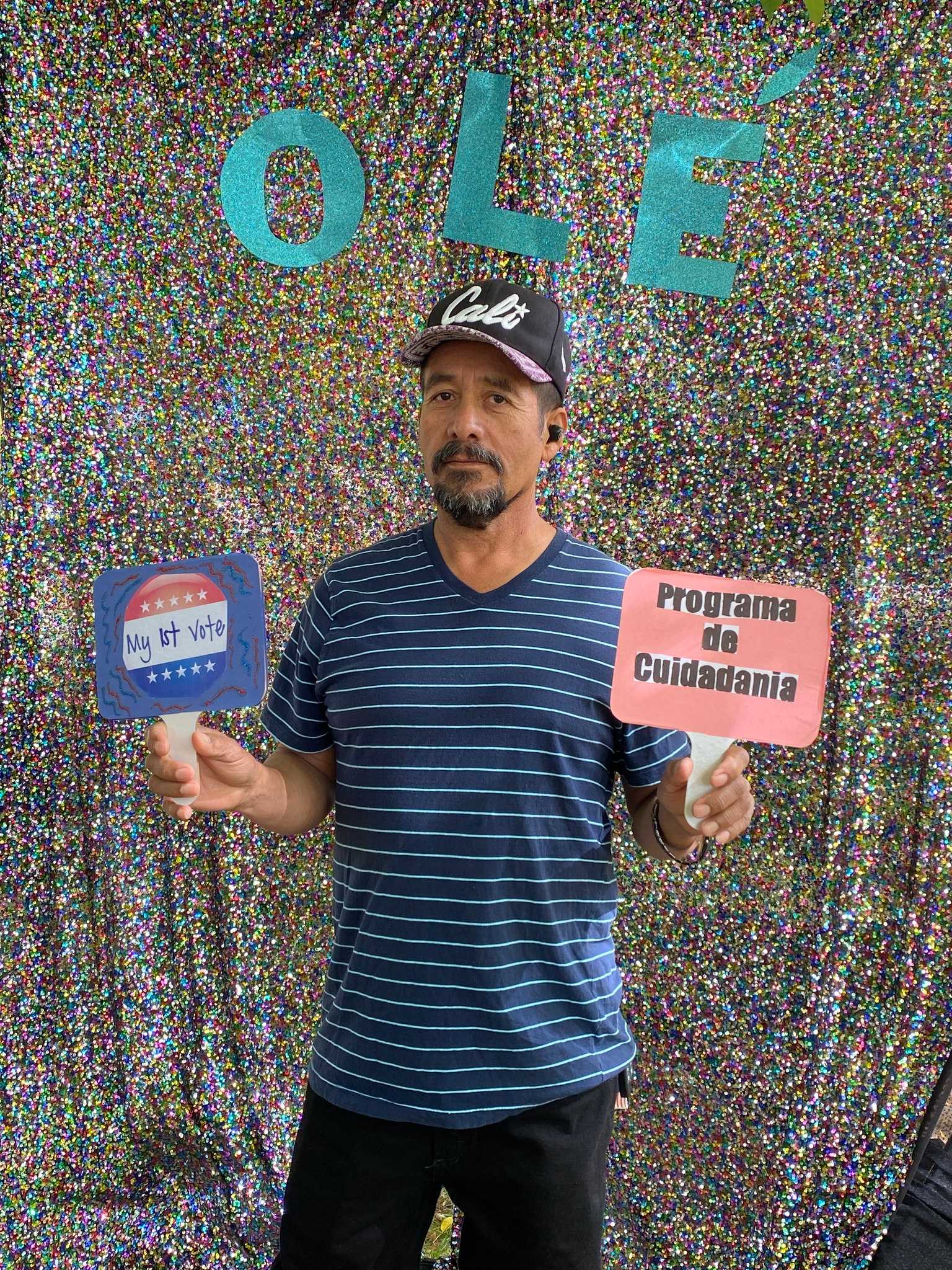
OLE
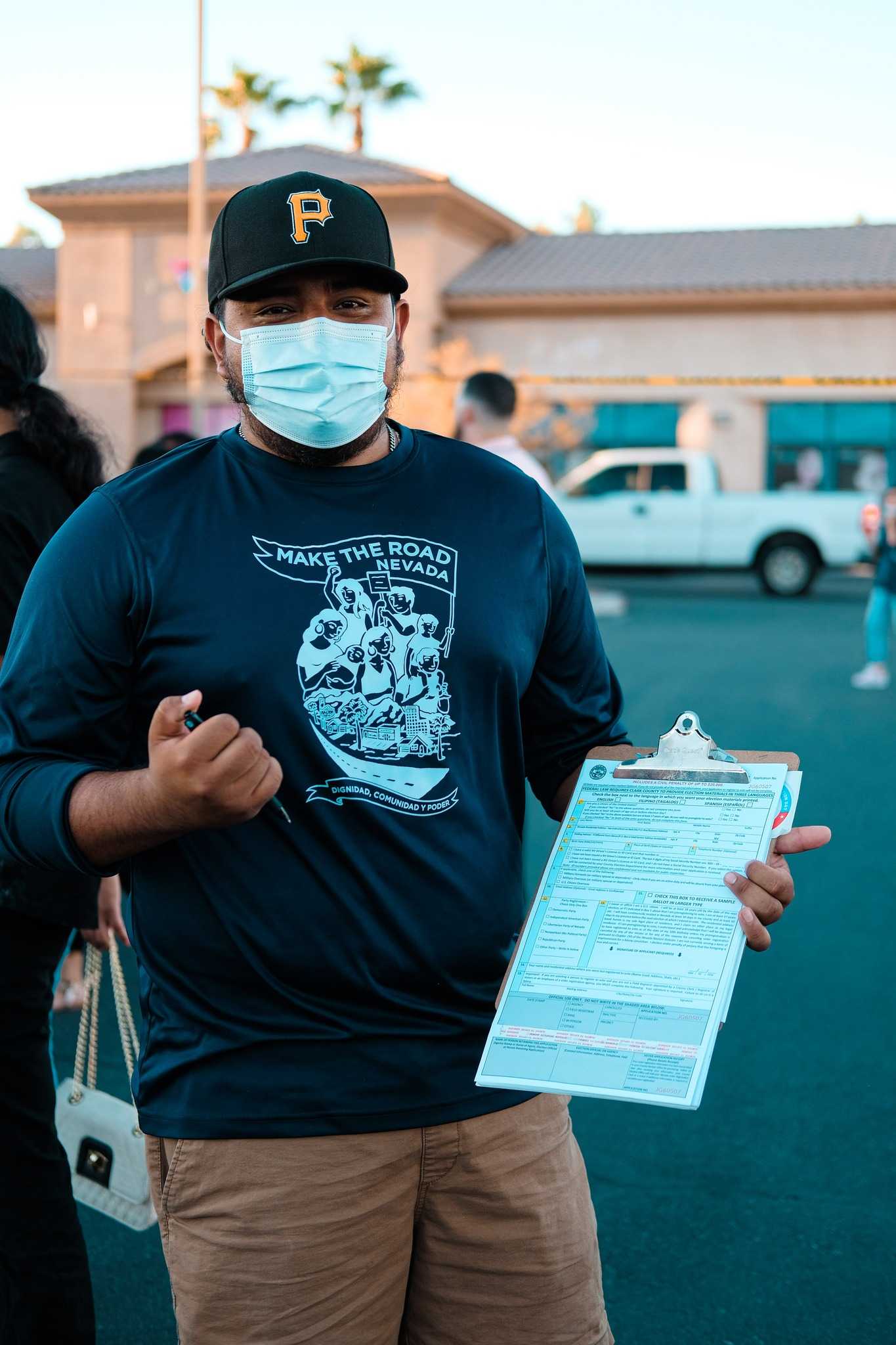
Make the Road
House and Senate Wins
- Nevada — We Won a US Senate Seat (9,007 votes)
America’s only Latina Senator Catherine Cortez Masto won reelection in Nevada, helping to hold the Senate for Democrats in this squeaker victory that wasn’t called until the Saturday after the election. MVP partners, including UNITE HERE, Make the Road, and One APIA Nevada pulled out all the stops to make it happen, knocking on more than 2 million doors. - New Mexico — We Won House District NM-2 (1,342 Votes).
Gabriel Vasquez pulled an upset in this Southern New Mexico district. MVP Partners, including OLÉ and CAFé Acción, ran robust direct voter contact and communications programs targeting new and sporadic Latino voters - Connecticut — We Won House District CT-5 (1,961 votes).
Jahana Hayes held onto this swing seat against a savvy opponent in Connecticut’s reddest district. Our partner Working Families, which has a strong organization in Connecticut, prioritized this race. - Colorado — We Won House District CO-8 (1,632 votes).
State Rep. Yadira Caraveo, a pediatrician, unexpectedly won this new seat, which is 39% Latino and was drawn as a slightly R-leaning toss-up in the redistricting process. MVP partner CIRC Action mobilized Latino voters. - Washington — We Won House District WA-3 (2,629 votes).
Democrat Marie Gluesenkamp Pérez won this (R+5) district formerly represented by Jaime Herrera Beutler in one of the biggest upsets of the cycle. MVP’s WA-based partner OneAmerica Votes ran a significant program there contacting 20,000 Latino, AAPI, and immigrant voters. - New York — We Won House District NY-18 (3,592 votes).
Democrat Pat Ryan won a full term after recently winning an upset victory in an August special election that took place with the previous maps. Citizen Action New York and Working Families mobilized voters in the district. - Pennsylvania — We Won House District PA-07 (5,835 votes).
Democrat Susan Wild won this R+2 district in Pennsylvania’s LeHigh Valley. Several MVP partners turned out voters in this district including Make the Road Action, POWER Action Fund, PA Stands Up, and Working Families.
Overall – we came SO close to holding the House! (6,675 Votes)
We lost the House by an extremely narrow margin across five districts: CO-3 (554 votes), CA-13 (565 votes), MI-10 (1,600 Votes), IA-3 (2,144 Votes), NY-17 (1,820 Votes). When you add it all up, we came just 6,675 votes shy of winning these five races and saving Democratic control of the House.
It’s heartbreaking when you think about all the good legislation we could have passed over the next two years if we’d turned out another 6,675 votes… But coming so unexpectedly close is still a kind of victory because it will make the MAGA House majority less effective and easier to defeat in 2024.
Because of the five closest House races our partners helped win (by a combined total of just 11,156 votes), we are five seats down in the House instead of 10 seats down. That could make a difference.
Statewide Wins
- Wisconsin — We won Secretary of State (7,625 votes).
Democrat Doug La Follette beat his “Big Lie” challenger in an election that took over a week to certify the final results. While the SOS does not administer elections in Wisconsin, defending this seat is key to blocking state Republicans from dismantling the bipartisan Wisconsin Elections Commission and shifting its powers to the SOS. - Arizona — We flipped a Governor (17,116 Votes)
We flipped the Arizona Governor, electing Democrat Katie Hobbs by less than a percentage point. It took over a week to get the final count, and Hobbs’ veto will be crucial even though we didn’t flip the state legislature (yet – we’re so close! And the fact that Hobbs won may even allow us to get some good legislation passed this session!). And we definitely dodged a bullet by defeating Kari Lake! - Arizona — We flipped an Attorney General (510 Votes)
We won by 510 votes out of more than 2.5 million cast to flip the Attorney General to Democrat Kris Mayes, narrowly denying office to an election denier. The race is currently in a recount but it is unlikely to change the outcome: Good news for abortion rights, voting rights, and more. - Minnesota — We protected the Attorney General (21,815 Votes)
Progressive champion Attorney General Keith Ellison was considered the most endangered AG in America. He was 7 points down in the last public poll with 10 out of 10 pundits in an insider tip sheet predicting he would lose on election day. Polls failed to measure the ground game of our local partners who turned out tens of thousands of voters; Ellison won by just .84% out of 2.5 million votes cast. - Illinois – We protected the State Supreme Court (10,980 Votes)
A Republican billionaire poured dark money into two sleepy downstate Supreme Court races (Illinois’ Supreme Court races are districted geographically) to try to flip the Court. But our partners Illinois Immigrant Action and the Center for Racial and Gender Equity threw down to support Judge Mary O’Brien to a one point victory.

Make the Road
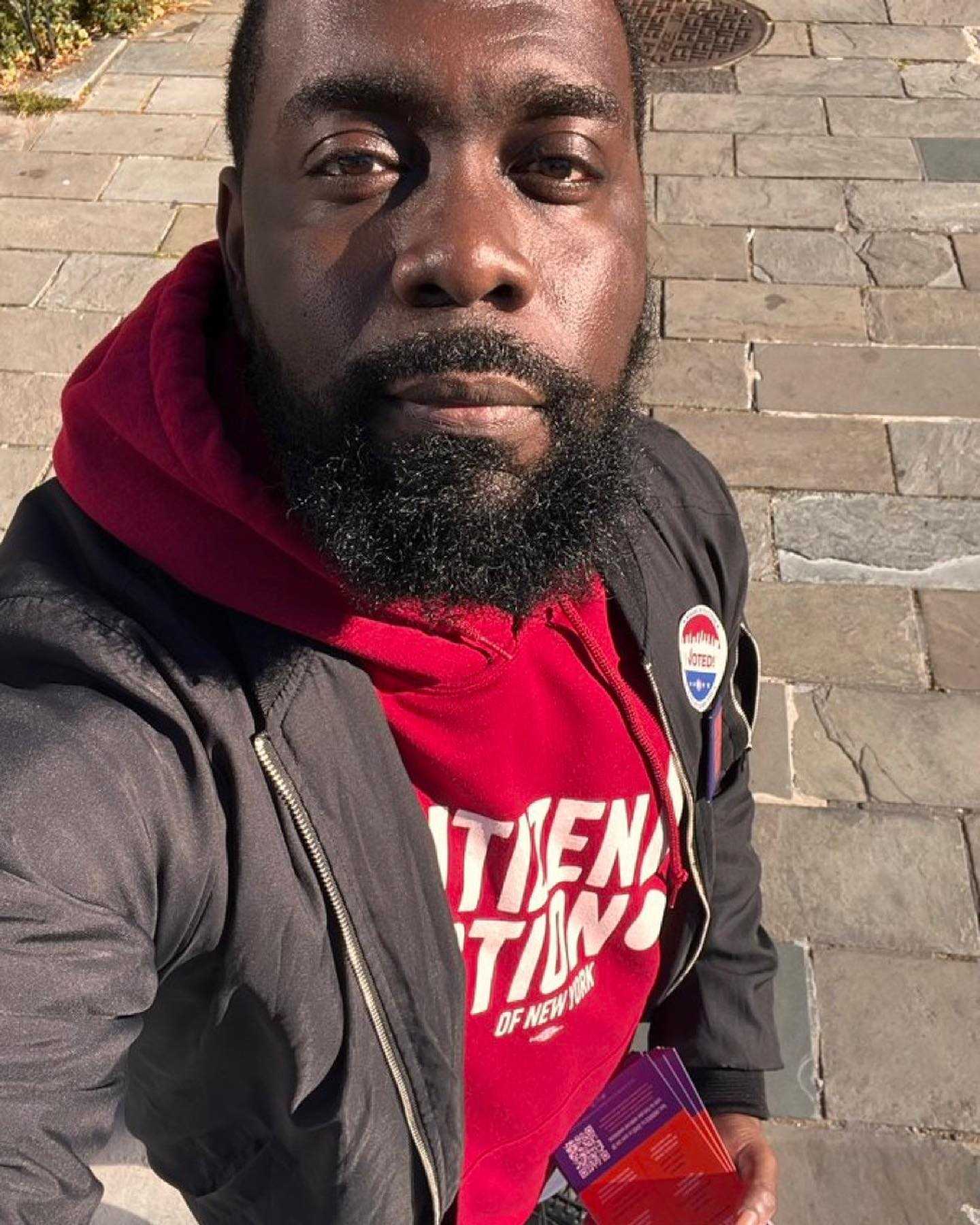
Citizen Action New York
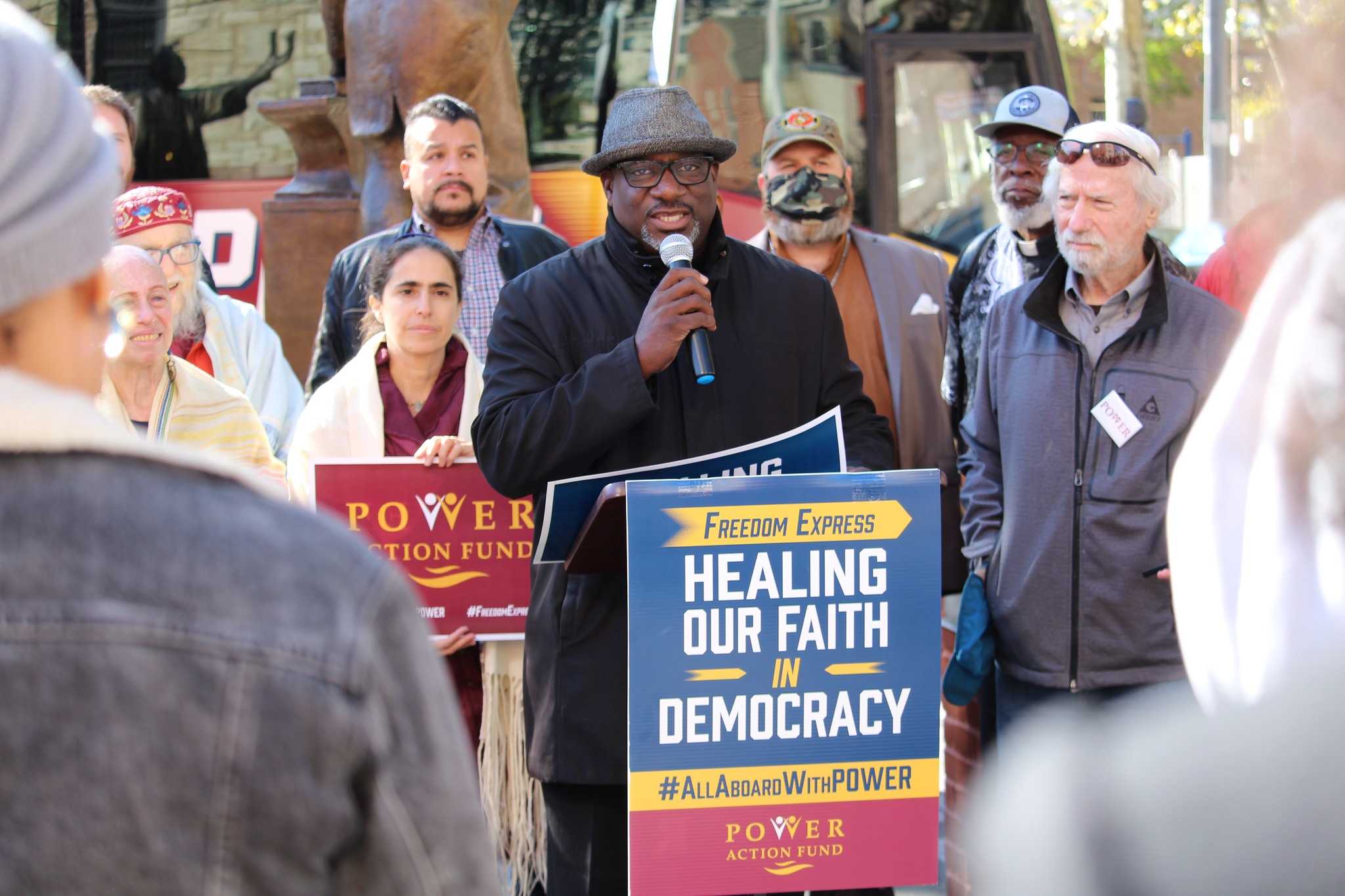
POWER Action Fund
Statewide Wins
- Wisconsin — We won Secretary of State (7,625 votes).
Democrat Doug La Follette beat his “Big Lie” challenger in an election that took over a week to certify the final results. While the SOS does not administer elections in Wisconsin, defending this seat is key to blocking state Republicans from dismantling the bipartisan Wisconsin Elections Commission and shifting its powers to the SOS. - Arizona — We flipped a Governor (17,116 Votes)
We flipped the Arizona Governor, electing Democrat Katie Hobbs by less than a percentage point. It took over a week to get the final count, and Hobbs’ veto will be crucial even though we didn’t flip the state legislature (yet – we’re so close! And the fact that Hobbs won may even allow us to get some good legislation passed this session!). And we definitely dodged a bullet by defeating Kari Lake! - Arizona — We flipped an Attorney General (510 Votes)
We won by 510 votes out of more than 2.5 million cast to flip the Attorney General to Democrat Kris Mayes, narrowly denying office to an election denier. The race is currently in a recount but it is unlikely to change the outcome: Good news for abortion rights, voting rights, and more. - Minnesota — We protected the Attorney General (21,815 Votes)
Progressive champion Attorney General Keith Ellison was considered the most endangered AG in America. He was 7 points down in the last public poll with 10 out of 10 pundits in an insider tip sheet predicting he would lose on election day. Polls failed to measure the ground game of our local partners who turned out tens of thousands of voters; Ellison won by just .84% out of 2.5 million votes cast. - Illinois – We protected the State Supreme Court (10,980 Votes)
A Republican billionaire poured dark money into two sleepy downstate Supreme Court races (Illinois’ Supreme Court races are districted geographically) to try to flip the Court. But our partners Illinois Immigrant Action and the Center for Racial and Gender Equity threw down to support Judge Mary O’Brien to a one point victory.
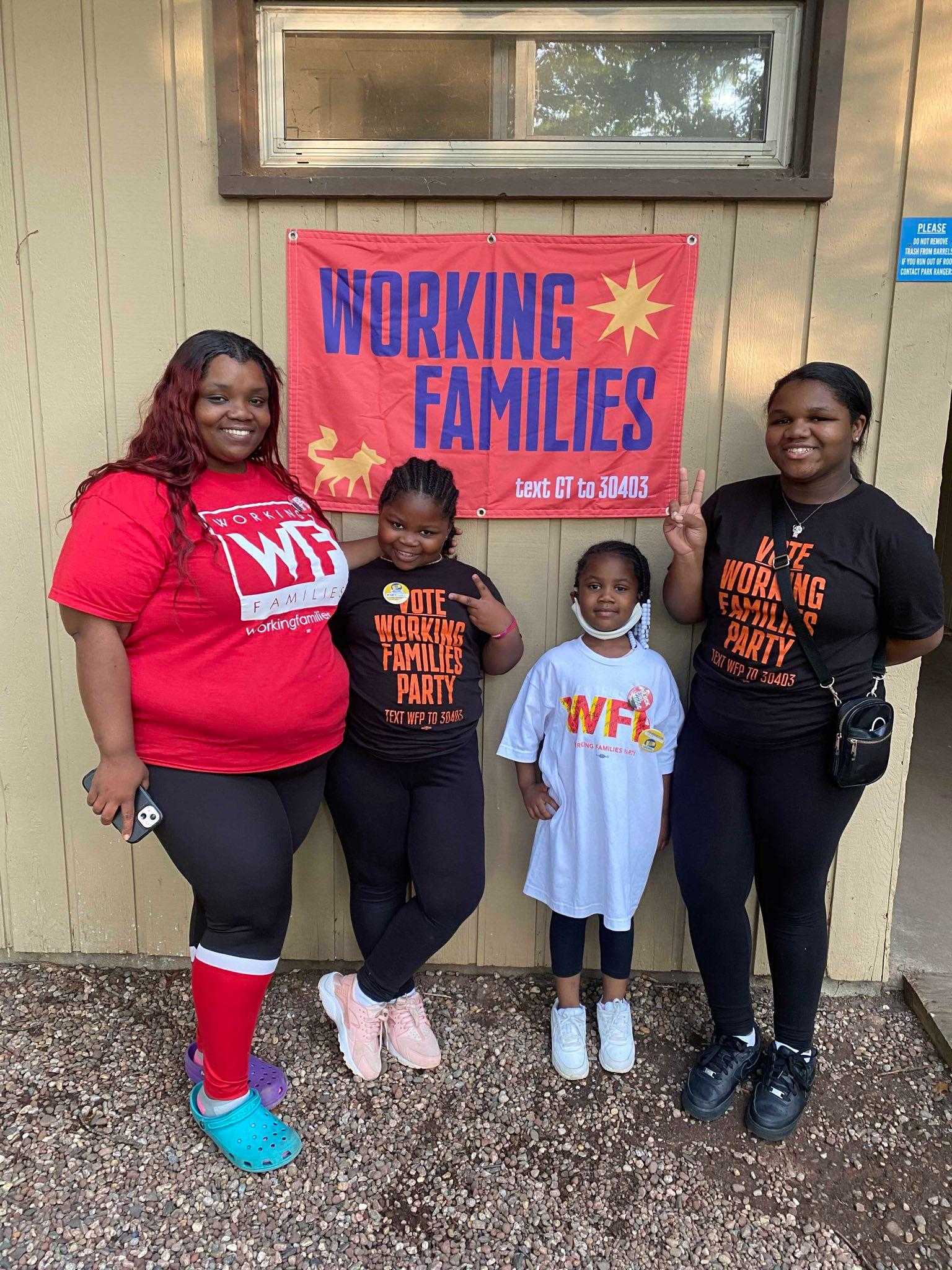
Working Families - CT
State Legislative Wins
- Michigan — We won a Democratic trifecta, first time in 40 years (2,770 Votes)
In one of the sweetest and most unexpected victories this election cycle, Democrats won a 2-seat margin in both the Michigan House and Senate, which will allow them to pass legislation on a long list of progressive issues. Major credit to Michigan People’s Campaign and We the People Action Fund who worked in these districts:- State House District 27: Jaime Churches (660 Votes)
- State House District 58: Nate Shannon (939 Votes)
- State House District 103: Betsy Coffia (767 Votes)
- State Senate District 12: Kevin Hertel (404 Votes)
- Minnesota — We won a Democratic trifecta (1,024 Votes)
We won a trifecta in Minnesota for the first time in a decade by holding the MN House and netting two Minnesota Senate seats for a one-seat Democratic majority – which opens up opportunities to pass a raft of progressive policies. Partners Faith-in-Minnesota Action, UNIDOS-MN, Gender Justice Action and others helped deliver these wins. Democrats won the two closest races by 1,024 votes combined:- MN Senate District 41: Judy Seeberger (321 Votes)
- MN Senate District 3: Grant Hauschild (703 Votes)
- Pennsylvania — We flipped the PA State House (63 Votes)
Democrats picked up 12 seats for a total of 102 seats in the 203-member State House to take a one-seat majority after Melissa Cerrato won the 151st District by just 63 votes. Winning the House was made possible by years of work by PA United, PA Stands Up, Casa in Action, Make the Road Action in PA, One Pennsylvania, API PA, and New Pennsylvania Project, Turn PA Blue, and advocacy for fairer redistricting maps. - North Carolina — We blocked a GOP supermajority (629 votes)
This one seat will narrowly preserve Democratic Governor Roy Cooper’s veto on voting rights, LGBTQ rights, and abortion – keeping North Carolina as the nearest safe haven for abortion in much of the Deep South. Seven MVP partners worked hard to support Diamond Staton-Williams to swing this race (NC House District 73). Down Home NC alone knocked on 42,000 doors and PODER Latinx contacted 10,000 voters in the district. She won by 629 votes. - Wisconsin – We blocked a GOP supermajority (2,499 votes)
Wisconsin Democrats won 35 seats in the Assembly, preventing a GOP supermajority and preserving the governor’s veto power. Our partners at Citizen Action of Wisconsin and Wisconsin Conservation Voters worked on these races:- Wisconsin Assembly District 54: Lori Palmeri (1,742 votes)
- Wisconsin Assembly District 94: Steve Doyle (757 votes)
- Nebraska – We saved the Democratic filibuster (82 Votes)
In a squeaker, Democrats saved the filibuster by one seat, electing John Fredrickson, the first openly gay man in the Nebraska legislature. He won Senate District 20 by just 82 votes with support from MVP partner She’s Electable. This should allow Democrats to block the worst anti-abortion legislation, and power grabs to redistrict away the competitive NE-2 Congressional seat and Nebraska’s split electoral vote for president. - Alaska — We won partial state legislative control (592 votes)
The Alaska state legislature goes into 2023 with bipartisan “unity caucuses” – made up of mainly Democrats with some Independents and moderate Republicans likely to lead each chamber. This is a huge win in an otherwise often deep red state. Elections that led to this bipartisan governing coalition include these close races:- Alaska House District 31: Maxine Dibert won HD 31 (515 votes).
- Alaska House District 18: Cliff Groh won HD 18 (77 votes).
- Maine — We held Maine’s State House; these 3 seats helped (1,352 Votes)
We held the state Senate and House, which experts predicted we’d lose. In the Maine House, Dems won 82 seats to the GOP’s 67, expanding their margin. This enabled us to hold the Secretary of State and Attorney General, because the legislature elects statewide offices as well. MVP partners Maine People’s Alliance and Food and Medicine supported the wins in three close races:- Maine House District 22, Bangor: Laura Supica (473 votes)
- Maine House District 55, Hallowell: Dan Shagoury (497 votes)
- Maine House District 57, Readfield: Tavis Hasenfus (382 votes)
- New Hampshire — We almost Flipped the State House (24 Votes)
We needed to pick up 22 seats to pull even in this 400-seat chamber. We picked up 20, with one race tied (to be decided in a special redo election). The final split will be a narrow Republican majority – either 201-199 or 202-198. Of the 198 wins, MVP partners (603 Forward, 350NH Action, and Rights and Democracy) contributed to four victories decided by 10 votes or less (you read that right! :). And with 13 more votes, we could have flipped the chamber.- NH House District Rockingham 5: Mark Vallone (5 votes)
- NH House District Coos 7: Eamon Kelley (2 votes)
- NH House District Hillsborough 45: Karen Calabro (10 votes)
- NH House District Hillsborough 29: Judi Lanza (7 votes)
Local Victories
- St. Louis – We elected the first Black mayor (2,280 Votes)
In the aftermath of Ferguson, organizers worked to elect Tishaura Jones as St. Louis’ first Black mayor. Four years ago, she lost by a heartbreaking 888 votes. This time she won – along with flipping 3 seats on the City Council and winning a progressive governing majority. Huge credit to Action St. Louis Power Project which knocked 60,000 doors. - Pittsburgh – We elected the first Black mayor and more (3,858 Votes)
A long-shot movement candidate, Ed Gainey was elected in a huge upset as Pittsburgh’s first Black mayor. He won alongside a slate of five judges, and two justice-related ballot measures. Major credit to 1Hood Power, Alliance for Police Accountability, One Pennsylvania, and Allegheny County Justice for All. - New Orleans — We elected a reform Sheriff (4,266 Votes)
Progressive reformer Susan Hutson upset long-term corrupt incumbent Marlin Gusman in the Orleans Parish Sheriff race with a vision to transform the local jail system. This has been a huge priority for local organizations PAC for Justice and Voters Organized to Educate. - Corpus Christi, Texas – We won a climate voice on City Council (133 Votes)
Last but not least, climate champion Sylvia Campos won a contested December 13th runoff on a platform to challenge fossil fuel infrastructure in Texas’ 8th largest city where the petroleum industry runs the town. A second climate champion Jim Klein also won by just 1,182 votes. Texas Campaign for the Environment (TCE) worked hard on both races.
What an AMAZING list, right? We could go on and on – there are several other races we’re still evaluating. You might wonder: just how does MVP help win so many razor-close elections? This may sound obvious but it’s one of MVP’s greatest value-adds: We invest in an exceptionally diversified portfolio of hundreds of local partners working in all the most pivotal places each election cycle where our support is most likely to make a marginal difference. Most national political funders pick their top 6-12 states to focus on – which is understandable. Perennial battlegrounds are important for a reason and long-term commitment to them is appropriate. MVP is deeply committed to our perennial battleground states and moves most of our money there too.
But when we as a field collectively focus the vast majority of our resources on 6-12 states, and end up ignoring the other 38-44 states, this can create its own set of problems (note that none of the five closest US House races we won were located in major battleground states, and four of the state legislative chambers we impacted most were outside of them too). MVP is proud that over the years we have advised donors to move money to over 40 states when we’ve seen opportunities to make a difference: States like Alaska, Nebraska, Kansas, Louisiana; neglected House districts like IL-17, NM-2, and OH-13.
We need to win in these places to cobble together even a bare minimum governing coalition at the federal level! Yet very few organizations of any kind have the capacity, breadth of relationships, or knowledge of the landscape to make deeply informed recommendations in them. MVP’s unorthodox strategic orientation and capacity to go both deep and broad is fairly unique. It’s part of what has allowed us collectively to help impact such an uncommonly long list of close elections, as documented above.
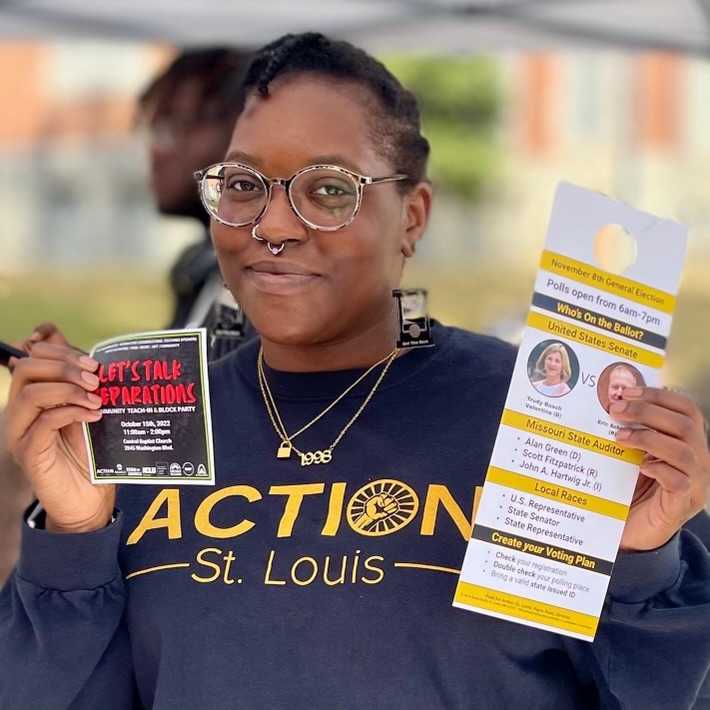
Action St. Louis Power Project
Local Victories
- St. Louis – We elected the first Black mayor (2,280 Votes)
In the aftermath of Ferguson, organizers worked to elect Tishaura Jones as St. Louis’ first Black mayor. Four years ago, she lost by a heartbreaking 888 votes. This time she won – along with flipping 3 seats on the City Council and winning a progressive governing majority. Huge credit to Action St. Louis Power Project which knocked 60,000 doors. - Pittsburgh – We elected the first Black mayor and more (3,858 Votes)
A long-shot movement candidate, Ed Gainey was elected in a huge upset as Pittsburgh’s first Black mayor. He won alongside a slate of five judges, and two justice-related ballot measures. Major credit to 1Hood Power, Alliance for Police Accountability, One Pennsylvania, and Allegheny County Justice for All. - New Orleans — We elected a reform Sheriff (4,266 Votes)
Progressive reformer Susan Hutson upset long-term corrupt incumbent Marlin Gusman in the Orleans Parish Sheriff race with a vision to transform the local jail system. This has been a huge priority for local organizations PAC for Justice and Voters Organized to Educate. - Corpus Christi, Texas – We won a climate voice on City Council (133 Votes)
Last but not least, climate champion Sylvia Campos won a contested December 13th runoff on a platform to challenge fossil fuel infrastructure in Texas’ 8th largest city where the petroleum industry runs the town. A second climate champion Jim Klein also won by just 1,182 votes. Texas Campaign for the Environment (TCE) worked hard on both races.
What an AMAZING list, right? We could go on and on – there are several other races we’re still evaluating. You might wonder: just how does MVP help win so many razor-close elections? This may sound obvious but it’s one of MVP’s greatest value-adds: We invest in an exceptionally diversified portfolio of hundreds of local partners working in all the most pivotal places each election cycle where our support is most likely to make a marginal difference. Most national political funders pick their top 6-12 states to focus on – which is understandable. Perennial battlegrounds are important for a reason and long-term commitment to them is appropriate. MVP is deeply committed to our perennial battleground states and moves most of our money there too.
But when we as a field collectively focus the vast majority of our resources on 6-12 states, and end up ignoring the other 38-44 states, this can create its own set of problems (note that none of the five closest US House races we won were located in major battleground states, and four of the state legislative chambers we impacted most were outside of them too). MVP is proud that over the years we have advised donors to move money to over 40 states when we’ve seen opportunities to make a difference: States like Alaska, Nebraska, Kansas, Louisiana; neglected House districts like IL-17, NM-2, and OH-13.
We need to win in these places to cobble together even a bare minimum governing coalition at the federal level! Yet very few organizations of any kind have the capacity, breadth of relationships, or knowledge of the landscape to make deeply informed recommendations in them. MVP’s unorthodox strategic orientation and capacity to go both deep and broad is fairly unique. It’s part of what has allowed us collectively to help impact such an uncommonly long list of close elections, as documented above.
Notable Wins
Here’s a quick summary of the major state and federal victories that MVP and its partners significantly contributed to, proportional to the margin of victory:

MVP’s Four Winning Strategies
In 2022, MVP identified four core strategies to secure a more level playing field in advance of 2024 and advance our goal of making the 2020s a progressive decade.
Strategy #1: Save the Senate
Strategy #2: Secure the States
Strategy #3: Hold the House
Strategy #4: Win the Issues
Here’s a look at the topline wins, losses, and a few of the unsung heroes who allowed us to defy the odds. Note that these are quick, preliminary reports that barely skim the surface of the incredible work MVP’s partners did.
Strategy #1: Save the Senate
GOAL: Retain or increase governing power in the US Senate.
TOP TARGETS: NV, WI, GA, AZ, PA, NH, NC.
RESULT: We won 5 of 7 and picked up one seat for a 51 seat Senate majority!
The impact of saving the US Senate – and actually picking up a seat cannot be overstated. This rather stunning achievement in a midterm election will allow Biden to appoint dozens of federal judges over the next two years. It will allow congressional Democrats to hold majorities on committees and unilaterally issue subpoenas for investigations. Most importantly, looking ahead, it will allow Democrats to have a fighting chance to hold the Senate over the next decade despite their structural disadvantage in the Senate.
In the tipping point state of Nevada, MVP’s five in-state c4 and PAC partners played a decisive role in reelecting our only Latina Senator Catherine Cortez Masto. Our partner UNITE HERE’s largest local, the Culinary Union, represents casino and hospitality workers in Nevada most of whom lost their jobs during the pandemic. Their skilled member- canvassers are exceptionally credible messengers in Las Vegas and Reno and they run a sophisticated operation that was able to knock 2 million doors – more than double the number they knocked in 2020. Cortez Masto won by 9,007 votes.
We could talk in depth about the role each of our local partners played to help win the Senate – from Pennsylvania to Arizona. In the Georgia runoff alone, MVP partnered in an unprecedented way to support the Georgia Alliance for Progress (an exceptionally strong and Black-led in-state progressive donor table). The Georgia Alliance directly supported more than 27 partners and 2,500 canvassers who knocked on an astonishing 5.9 million doors with an impressive 25% contact rate, and made 2.3 million calls and 3.6 million texts in just 28 days.
They immediately pivoted post-election without even taking a day off, working through their weekends and talking to voters while holding umbrellas in the pouring rain. Not to mention the millions of voters they reached out to over the past two years while navigating Georgia’s SB-202 gauntlet of anti-voting restrictions, which dramatically reduced the ballot access of Black and brown voters.
Talk about scale: Collectively, the Georgia groups we supported deployed more canvassers than both Senate campaigns and the Democratic and Republican parties combined – with a fraction of the funding. Their hard work paid off. They re-elected Raphael Warnock to his first full term in the US Senate by 96,000 votes, slightly more than his margin in 2021.
But MVP’s local partners didn’t just save the Senate. The beauty of MVP’s local model is that our partners support candidates and issues up and down the ballot (often dozens at a time!) with an emphasis on whichever races are most important, motivating, and tippable – which is much more cost-effective than just supporting one candidate. So in addition to saving the Senate, our local partners also helped flip House races, governors, state legislative races, and more. In many cases, it was down-ballot candidates and elections that drove the passion of volunteers and turnout for the Senate races, more than the other way around.
Spotlight on Nevada: Duy Nguyen’s story
Back in 2018, MVP gave the first seed grant to start One APIA. One APIA was founded as an outgrowth of a community service and advocacy organization for the AAPI community to provide a food pantry, health clinic, emergency and legal services, and cultural programming. When they see a community need, they jump to fill it, and all of this builds trust and community that go far beyond their political work in Nevada’s ethnically and politically diverse AAPI community (which represents 11% of the electorate). This year, One APIA’s Executive Director Duy Nguyen was encouraged to run for State Assembly, and won! One APIA also organized their biggest-ever voter engagement campaign.
A final note about Senate strategy: Most people don’t understand what a huge structural disadvantage Democrats now have in the Senate for the foreseeable future. A decade ago, Democrats had 16 senators in red states. Now we have just three (OH, MT and WV) – all of whom will face tough reelection fights in 2024. Republicans only have one senator in a blue-leaning state – Susan Collins in Maine, who isn’t up again until 2026. Given the Senate map, Democrats will need to play a near-perfect hand to have a shot at holding onto the Senate for the next decade. And we really need both the Senate and the Presidency to have any hope of eventually replacing two more Justices on the Supreme Court. Going into 2024 with 51 votes instead of 50 or 49 means we have a fighting chance.
And don’t get us started on the Mandela Barnes race in Wisconsin where he got clobbered with racist attack ads while national political funders sat on the sidelines – and then went on to lose by just 26,255 votes. MVP focused in 2022 on Wisconsin, Nevada, and Georgia as our top three Senate races. Post-election, we feel vindicated in our targeting: Georgia and Nevada ended up being the two closest winning races.
And we’re still mad about the disinvestment in Mandela’s race in Wisconsin. We really needed that 52nd Senate seat (especially now with the Kyrsten Sinema mess). We could have won it. And as time goes by, the consequences of divesting from Mandela’s race will become clearer and clearer. Hopefully this will be a lesson learned for the DC political class who divested. In the meantime, we are thankful to have played a role in having helped win the 50th and 51st seats in the Senate. Going forward, we need to fight for every competitive Senate race as though it’s as important as a Presidential swing. The margin for error is zero.
Strategy #2: Secure the States
GOAL: Prevent election deniers from controlling the 2024 election.
TARGETS: PA, MI, WI, MN, AZ, GA, NV, NC, NH, NE.
RESULT: We passed with flying colors – and won proactive victories too!
Control of state governments in critical 2024 battleground states was arguably the most consequential thing on the ballot in 2022. Outright election deniers were gunning to control governorships, secretaries of state, and legislative chambers in almost all of the major 2024 battleground states. It was a serious question whether we would have been able to have a legal presidential election in 2024 – which is really scary! – to say nothing of state-level policies around abortion rights and other matters of life or death.
The 2022 election was nothing less than a challenge to our democracy. And we did amazingly well! We won almost everything we could have realistically hoped to win, including six contested governors and seven secretaries of state and attorneys general (including the appointed ones in Maine and Pennsylvania).
In addition to that – and here’s the real icing on the cake: we helped flip four state legislative chambers (MN House, PA House, and MI House and Senate) plus two chambers that came close enough to change the trajectory of governance in their states (Alaska and New Hampshire). We blocked three Republican supermajorities – in Wisconsin, North Carolina, and Nebraska (where the filibuster is important to prevent Republicans from taking away Nebraska’s one competitive House district and Electoral College vote). And in Nevada, we actually gained a Democratic supermajority in the Nevada Assembly, and came one vote short in the Nevada Senate.
Pennsylvania flipped the state House – by one seat, decided by 63 votes. New Hampshire came two seats short of flipping their state House (decided by 24 votes!). If we had also won three more races that we lost by a total of 13 votes, we would have won control of the New Hampshire House. Good news: it will be almost impossible for Republicans to pass anything in such a large and closely divided chamber, due to the likelihood of absences, and factions. In short: we significantly derailed the Republican trifecta. And most fascinating of all, in Alaska, Democrats came a few seats short and were able to form a “unity coalition” with a handful of independents and moderate Republicans in both the House and Senate to co-govern the state around a relatively moderate and pragmatic agenda – a potential model that is being explored in otherwise red Western states.
In North Carolina, our partners blocked a veto-proof Republican supermajority in the House – by 629 votes. In Wisconsin we blocked a GOP supermajority by two seats decided by a total of 2,499 votes. In Nebraska, our partners helped win a victory to preserve the filibuster, again by one seat that we won by 82 votes. And we narrowly protected the Democratic majority on both the Montana and Illinois Supreme Courts.
But the real crowning achievements of the cycle were in Minnesota and Michigan where we now have Democratic trifectas to finally pass progressive legislation.
Spotlight on Michigan: How Betsy Coffia won her rural northern Michigan district
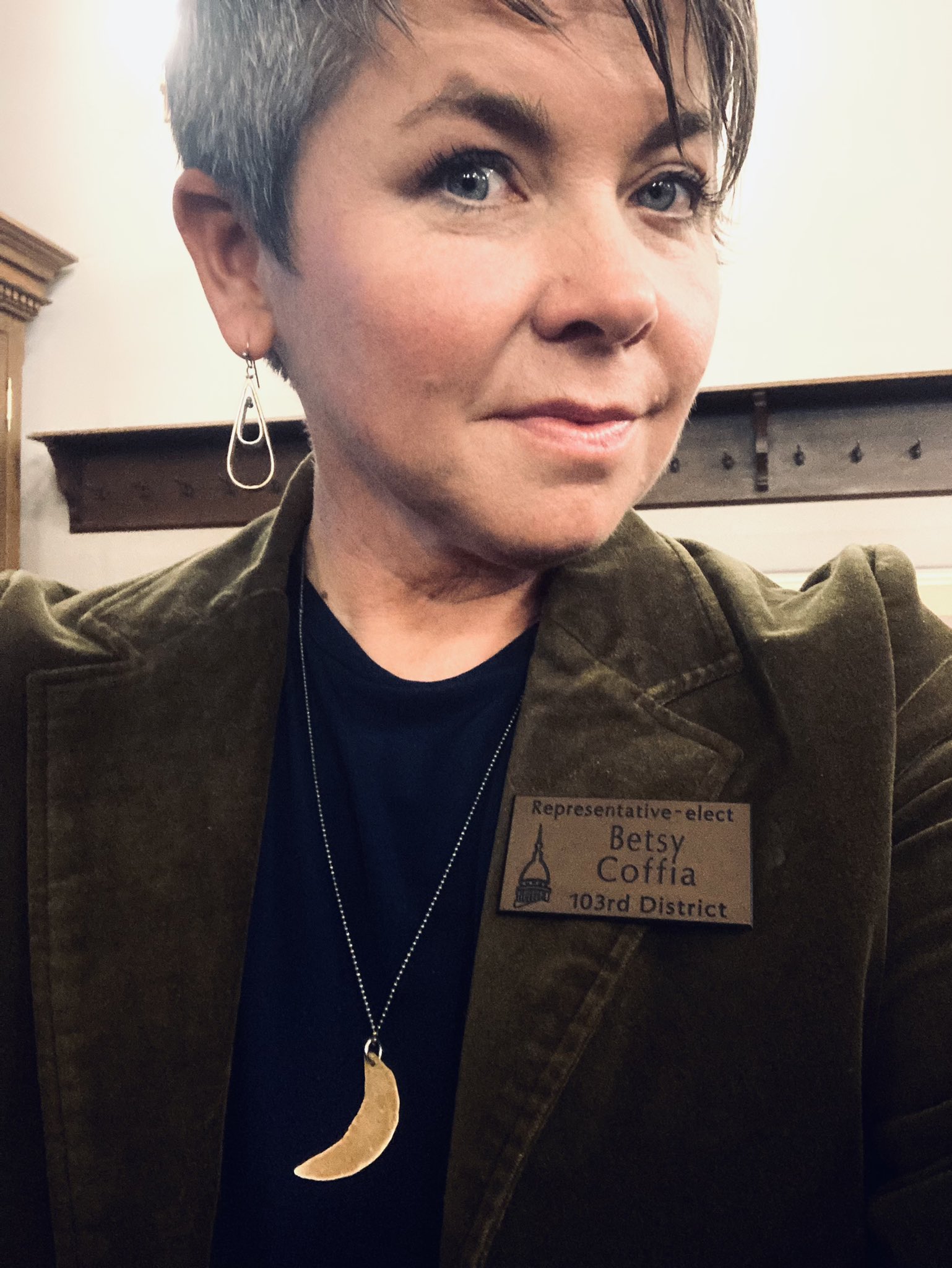
In Michigan, we swept statewide, winning just about everything: governor, secretary of state, and attorney general races, holding our one-seat majority in the Michigan State Supreme Court. And improbably, we flipped both houses of the Michigan legislature to create a Democratic trifecta for the first time in almost 40 years! Michiganders also passed constitutional amendments expanding voting rights and protecting reproductive freedom. We won every State Board of Education and university trustee seat. We expanded our county commission majority in Oakland county (Michigan’s second-largest county) and passed important local funding proposals.
With these victories, Michiganders will be able to protect their water and environment with “polluter pays” legislation and public trust protections; to expand affordable childcare and higher education; to enshrine protections for working families like paid sick leave and a higher minimum wage; and to require corporations and the wealthiest to contribute more fairly in this regressively-taxed state.
Here is one local story of how we did it: Betsy Coffia, the Rural Lead Organizer for MVP partner organization We the People Action Fund (WTPAF) ran and won a seat in the state legislature in the 103rd Legislative District, becoming the first progressive movement organizer to represent a rural community in the legislature in recent history. As a WTPAF organizer, Betsy stood up for working people in rural Northern Michigan – from organizing meal trains for healthcare workers during the pandemic to fighting for women who were being abused in the county jail, to standing up for teachers and students when school board meetings became the frontline of political battles. As a candidate, she stood firmly in her values, despite the fact that her district leans Republican.
Coffia’s district is also the heart of the cherry belt. Farm workers have been fighting to win access to drivers licenses for years, and under the leadership of WTPAF’s Immigrant Justice team, they built a powerful statewide campaign. They knew Betsy’s race could determine the majority in the state House and could elect a champion in a rural community where migrant workers were woven into the community’s fabric. They hosted house meetings, phone banks, carne asadas, and community events. Farm workers left work at the orchards early to register and cast ballots for the first time. Hundreds of people who are often treated as invisible organized and flexed their power and helped Betsy Coffia win by 767 votes.
Of course, we didn’t win everything we had hoped at the state level. We had some painful losses in Georgia, Florida and Texas and a mixed result in Nevada (narrowly losing the governorship). And we also lost state Supreme Court majorities in Ohio and North Carolina. Most of these were expected losses, but that doesn’t make them any less difficult. Losing Stacey Abrams’ race was especially painful. We have a lot of work to do.
But zooming out, MVP and our partners helped Democrats to shine and completely outperform expectations at the state level. MVP and our partners made a significant and in many cases decisive impact on governance in 12 states (MI, MN, ME, NV, PA, AZ, WI, NE, NC, IL, KS, NH) in an uphill midterm cycle. This is a huge feat – worth celebrating!
Strategy #3: Hold the House
GOAL: Save the House or at least limit our losses to less than 20 seats.
TARGETS: 56 House districts in 29 states.
RESULTS: We overperformed expectations and came very close!
One of the biggest miracles and tragedies of the 2022 election is that we came tantalizingly close to holding the House too. MVP supported local organizations working in every single competitive House district of the 2022 cycle – 56 districts in 29 states. Our partners persuaded and turned out unlikely voters to win tough races from NM-2 to C0-8 to WA-3 to OH-1 to NC-13, which we were generally expected to lose.
In all, we won 25 of the 36 competitive races plus one seat that favored Republicans – including a lot of sweet and surprising victories. In many cases, these districts were embedded within other important races – meaning that increased district-level turnout led to important wins in state-level races as well. For example, Sharice Davids’ race in KS-3 was embedded within the Kansas governor’s race, which our partners also helped to win.
In Ohio, our partners at Stand up for Ohio fought for years for fairer districts, and then turned out voters in Cincinnati and Akron to score two major upset wins in OH-1 and OH-13. In Colorado’s new 8th Congressional District, CIRC Action ran a huge program to mobilize Latinos, helping elect a Latina Democrat in a new and highly competitive (and 39% Latino) district by just 1,632 votes. On Colorado’s Western Slope, our partner the Western Organization of Resource Councils (WORC), came 511 votes short of pulling off a shocking upset of Lauren Boebert in CO-3, which no one outside the district saw coming.
The beauty and challenge of working in competitive House districts is that most of them fall both outside of typical battleground states and outside of dense metro areas, where most local organizations are based. One of MVP’s most unique value-adds is to research and support the best organizations in these often-neglected geographies in less competitive states.
Spotlight on NM-2: Winning back the border region
Going into the election, most analysts categorized NM-2 (the southern NM congressional district) as a tough race we were unlikely to win. The border region of New Mexico, like Texas, had trended red in 2020, and we faced a tough incumbent in Yvette Herrell. But MVP partners, including OLÉ and CAFé Acción, ran robust direct voter contact and communications programs targeting new and sporadic Latino voters, using Spanish language radio, direct mail, early voting events, and multiple attempts to reach voters at the doors, all with research-backed, culturally competent messaging, in partnership with Equis. All these efforts worked to push local City Councilor Gabriel Vasquez to a victory, winning by just 1,342 votes.
Our strategy for winning back the House: Winning back the House in 2024 (or even 2026 or 2028) won’t be easy. Sure, we technically only have to pick up 5 seats. It’s doable – but the path is already narrow given that there are so few genuine swing districts left, and we expect Ohio and North Carolina to do mid-cycle gerrymanders (with their new Supreme Court majorities) to attack 3-6 districts that Democrats won in 2022. So Democrats will likely need to net a minimum of 10-12 additional seats to win back the chamber.
MVP is preparing a long-term campaign to take back the House in 2024, hold it for the next six years, and then expand our majorities by growing our state legislative and judicial power in key states in advance of the 2030 census and redistricting process. In other words, our plan is to continue investing in many of these districts consistently, and helping to strengthen local organizing there, for at least the next eight years. And this also means we’ll be listening to local organizations and looking for issue campaigns and down-ballot races that overlap with these districts as a way to educate voters about their representatives in the “off”-years.
Strategy #4: Win the Issues
GOAL: Win Federal and state policy.
FEDERAL TARGETS: WV, AZ.
STATE-LEVEL TARGETS: 20+ States.
RESULTS: We won huge federal and state policy victories on climate, economic fairness, abortion, voting rights, LGBTQ equality, racial justice, and more!
Real talk: What’s the point of winning elections if we don’t pass policies that improve millions of people’s lives? Even though we talk a lot about politics, policy change is the real reason why we actually do this work.
In early 2021, we realized that Biden’s ambitious agenda would come down to Democratic senators in two states: Arizona and West Virginia. Yet, it turned out that –shockingly– neither state had a robust operation in place to move Manchin or Sinema around federal legislation. So MVP worked with local partners to seed-fund coordinated efforts in both states. This was one of our proudest behind-the-scenes efforts. After more than a year of organizing calls from his constituents, and events, Manchin finally signed the Inflation Reduction Act, an imperfect but meaningful step toward economic fairness, affordable drug prices, and the largest climate and clean energy investment in US history. We also invested in electoralizing a historic $400 billion campaign to cancel student debt for 40 million Americans, which we thought we won in August but is an ongoing fight.
In the wake of the horrifying Dobbs decision, MVP doubled-down on our commitment to funding reproductive justice work. In Kansas this led to an unprecedented effort to defeat an anti-abortion ballot initiative. Winning the August special election in Kansas sent shock waves through the political landscape – and put wind in all of our sails!
At the state level, winning on ballot measures is great. But it’s even better to win governing power. In Minnesota alone, our new one-seat majority Democratic trifecta has opened up a world of possibility, including the potential for: ambitious climate legislation; fully funding public schools, childcare and transit; passing paid family and medical leave; driver’s licenses for all; criminal justice reform; protecting abortion access; voting rights expansion; legalizing marijuana with expungement; and more. Winning a good trifecta is like winning a dozen ballot measures on everything you care about at once.
All of these state policy wins were mirrored in myriad wins at the local level. Our partners helped win criminal justice reform by protecting reform-minded district attorneys and even elected new reform DAs in Hennepin County (Minneapolis), Polk (Des Moines), Hays (metro Austin), and Shelby (Memphis) – which was especially impressive given the well-orchestrated backlash against reform. Our partners elected five judges and passed two justice reform ballot measures in Allegheny county (Pittsburgh) and seven judges in Philly. We won school boards in suburban Milwaukee during the right-wing backlash toward public schools. We flipped utility boards in Alaska with climate champions who used their positions to shut down a coal plant.
Spotlight on LGBTQ Equality
Many of our most unsung victories were defensive ones. Our partners defeated an onslaught of nasty anti-LGBTQ and anti-trans legislation across the country. Republicans have made trans people their new scapegoat to the tune of over $50 million in misleading attack ads this cycle alone, which the FBI has linked to a dramatic increase in anti-LGBTQ hate crimes and violence. Our brave LGBTQ partners like Equality Arizona were vastly outspent but fought back and punched above their weight in creative and sophisticated ways, such as using modeling data to humanize transgender people within religious communities. Equality Florida cleverly branded Ron DeSantis’ “Parental Rights in Education” Bill as “Don’t Say Gay” and organized an unprecedented pushback within the Disney corporation against the policy. And even while horrible legislation passes, LGBTQ people are winning races across the country, from the first out Black gay male LGBTQ state rep in Texas to the first non-binary elected official in Montana. More than 436 new out LGBTQ candidates won their races this cycle — a record!
Last but not least, in an obscure run-off on December 10, our partners in Louisiana helped elect Devante Lewis, a 30-year-old Black queer environmentalist who defeated a corrupt long-time incumbent on Louisiana’s Public Service Commission, which regulates utilities. Devante, the definite underdog in the race, ran on a 100% renewable platform.
Stay tuned to see what legislation we pass in the states over the next two years! We had so many state and local victories – we would need to do a whole other report to even list them all! Issue by issue, election cycle by election cycle, our partners are making our country better – from the ground up.
MVP partners won on Abortion Rights and so many ballot measures!
MVP Partners worked tirelessly to win on many fronts. With threats to abortion, our partners went on to win five abortion measures on the ballot in November, most notably in Michigan, Montana and Kentucky.
Our partners helped win ballot measures on so many issues in so many states: A democracy ballot measure in Michigan to expand voting access and protect the certification process; funding for early childhood education in New Mexico, paid for by oil and gas revenues; raising the minimum wage in Nebraska; a pro-immigrant ballot measure allowing students with DACA to pay in-state student college tuition, decriminalization of marijuana in five Texas cities; and a first-of-its-kind ballot measure capping predatory medical debt in Arizona – all of which our local partners played a significant role in. They also defeated bad ballot measures including voter ID in Arizona, and a constitutional convention in Alaska, ostensibly to remove abortion protections. Our partners also played roles in Medicaid expansion in South Dakota; marijuana legalization in Missouri and Maryland with provisions for expungement of previous marijuana convictions; winning universal free lunch in public schools in Colorado, and curtailing the use of prison labor in Alabama, Tennessee, and Vermont; and enshrining a constitutional right to collective bargaining in Illinois and so much more!
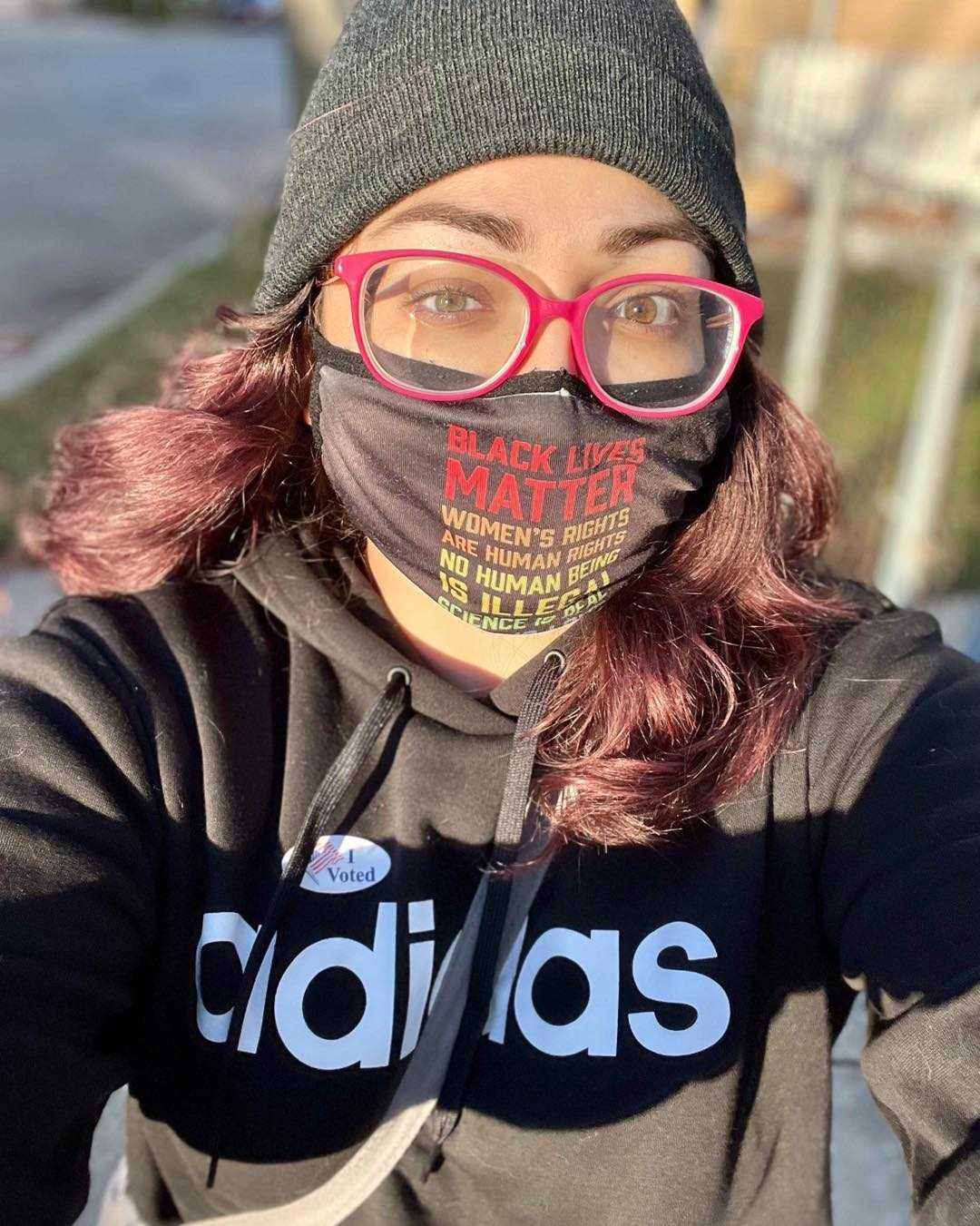
Citizen Action of Wisconsin
Looking Back on 2022
The political odds were against us in 2022, and to say the least, we dodged a bullet. We are incredibly relieved, grateful for, and proud of the organizers, voters, and donors who showed up this cycle to defend our democracy and build a movement that is bigger than all of us. We set out last fall with an audacious idea to defy the odds in 2022. We mostly succeeded, and we could have saved the House if we had figured out a way to move more money sooner.
Our amazing success notwithstanding, funding for grassroots electoral organizing was a huge challenge this cycle — not just for MVP, but across the board. There was less money than expected, and it came late. This was especially true of political c4 and PAC funding. We heard this over and over from local partners and allied funders: “Where’s the money this cycle?” There was definitely a combination of donor fatigue, demoralization, complacency post-Trump, and general lack of inspiration at play.
To make matters worse, for our local partners, everything was a lot more expensive. Wages went up dramatically across the board – which is great, but it now costs 30-50% more to run a canvass than it used to. It’s also harder to keep talented staff (both senior and entry level) who, as much as they love the work, are getting burnt out and lured away by higher paying, less stressful industries. There is much more to reflect on strategically and tactically, but this was the biggest topline. We need to get much better at organizing more money earlier in the cycle.
A huge heartfelt thank you to everyone who dug deep and gave early this cycle – and to everyone who went above and beyond to spread the word, volunteer, organize local teams and house parties, and organize others to give. You made a huge difference.
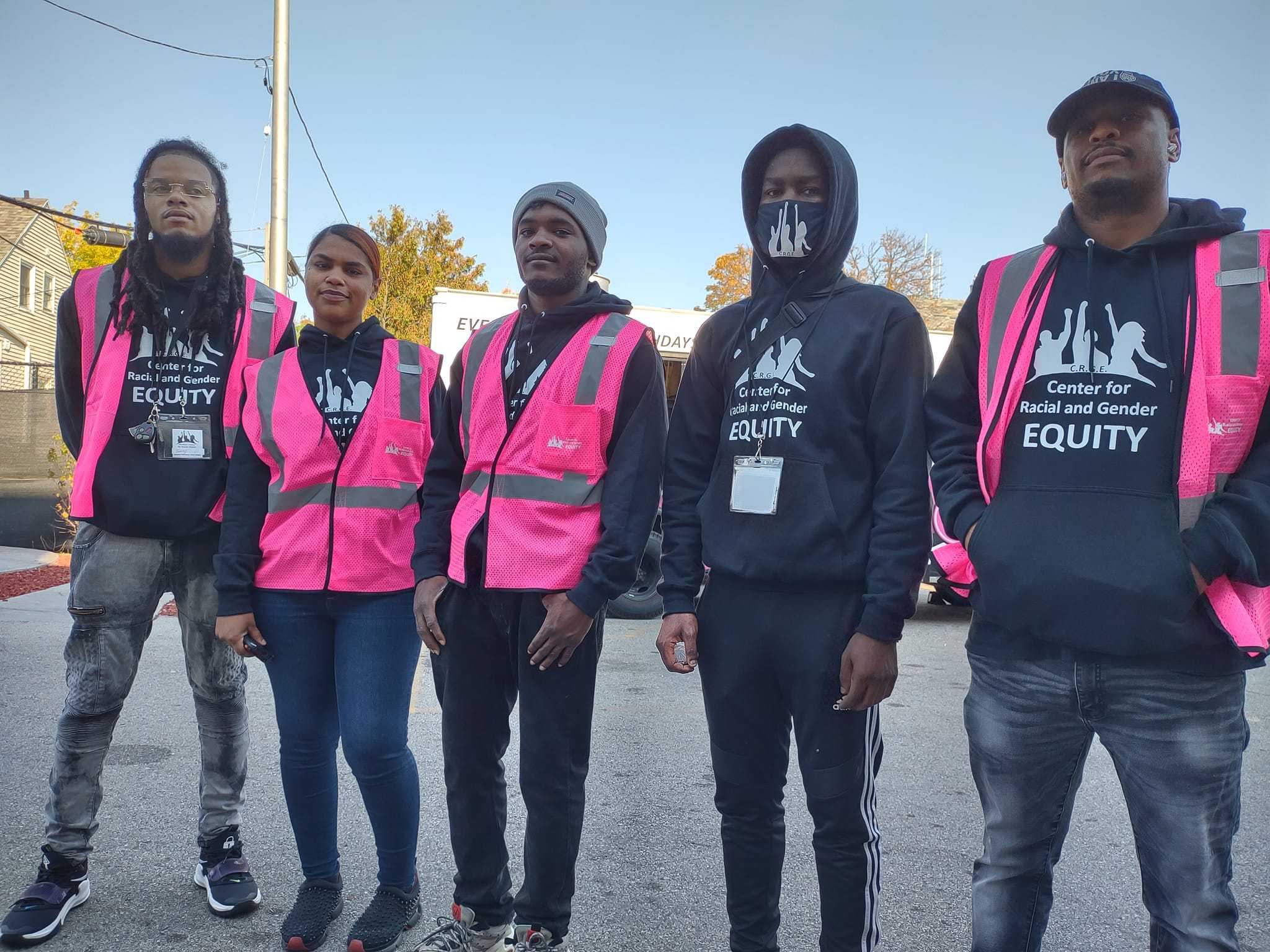
Center for Racial and Gender Equity
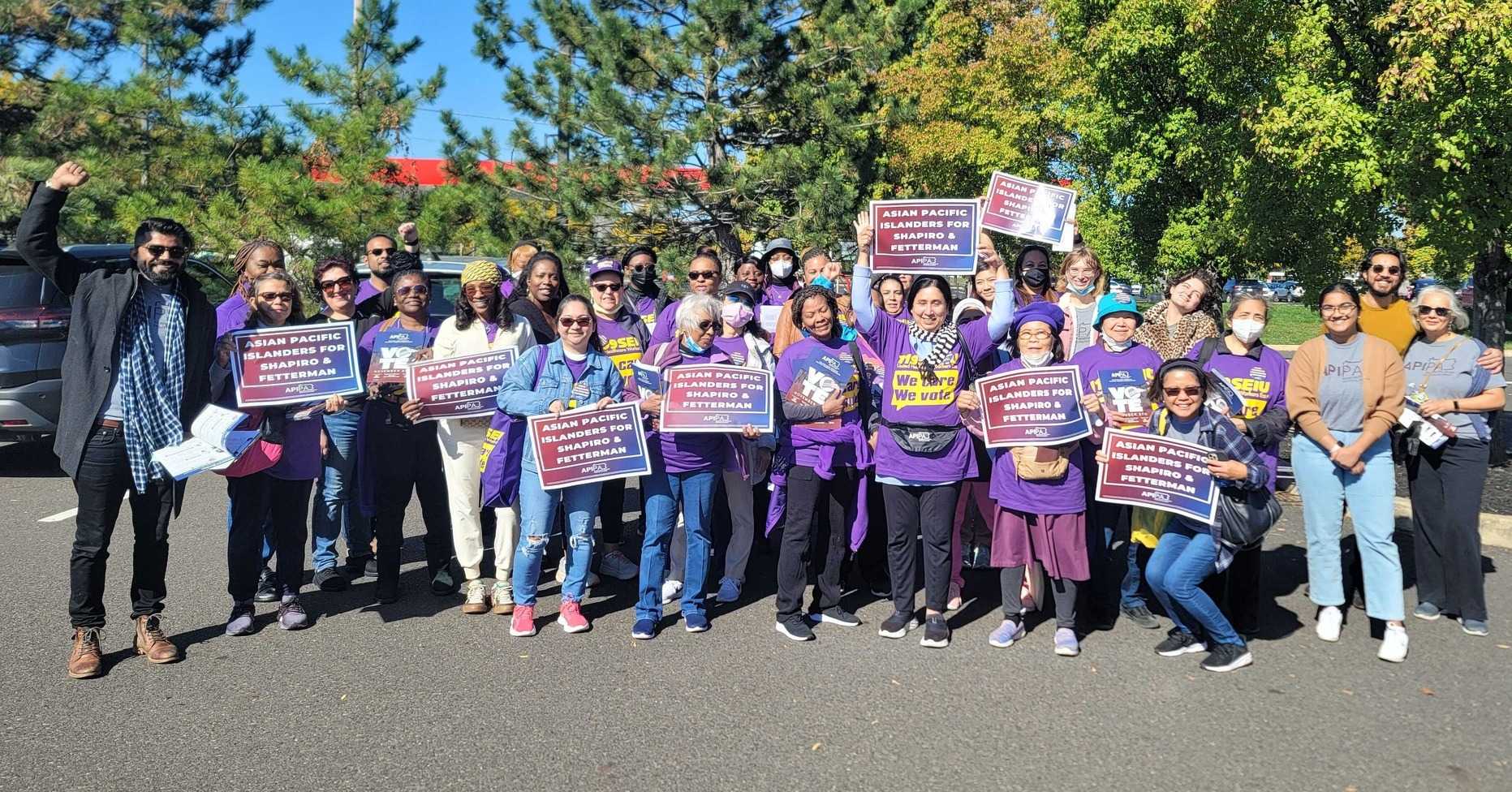
API PA
The Road to 2024
People aren’t ready to think about this yet, but 2024 is a scary election cycle with a lot of unknowns. While it’s hard to predict the future, as strategists, we have to start orienting ourselves to what is emerging as the most likely scenario in the 2024 election: Biden facing off against Ron DeSantis. This would be a concerning scenario to say the least: Biden’s approval is consistently in the low 40s, and he’ll be 82-years-old. Many Democrats have openly wished for another candidate. But there isn’t an obvious one.
As Trump’s challenges mount, DeSantis is becoming a juggernaut, riding high on his Florida landslide, massive war chest, ardent right-wing fan base, and apparent crossover appeal to suburbanites and Latinos. His Florida Republican Party machine is the strongest in the country. DeSantis would be a formidable opponent in a general election, and as many have said, he is actually scarier than Trump. He is the electable, competent version of Trump: fresh faced, less baggage, same authoritarian worldview. We’ve seen him, as governor, install an “election police” goon squad who arrested voters under false pretenses. He unilaterally removed elected school board members and a county prosecutor from office for expressing liberal views on race, gender, and abortion. He’s bad. But next to Trump, he might appear reasonable to suburban voters and be hard for Biden to beat.
It is prudent to assume that the most likely scenario in 2024 is DeSantis narrowly defeating Biden in a handful of key states. If DeSantis wins, Republicans would almost certainly also tip the Senate and control the House. As relieved as we are in the afterglow of the midterms, two years from now we could easily find ourselves in a very different situation: living under a Republican trifecta that is determined to repeal the 20th Century, and/or liberal democracy itself. This would likely include a nationwide abortion ban; the gutting of environmental protections; and systematic targeting of democratic institutions, constituencies, and leadership. That is the most likely bad scenario we need to start preparing to avert.
The most realistic good scenario to aim for is helping Biden defeat DeSantis by narrow margins in the same key states as he defeated Trump in 2020 (ie. GA, AZ, WI, MI, PA, NE). In this scenario, we somehow hold two of the three red state Senate seats, plus Arizona, which is now perhaps even more endangered with Sinema’s withdrawal from the Democratic Party. And we pick up 10-12 seats in the House – by narrow margins. If we pull this off, we will recreate our narrow Democratic trifecta and we might even be able to pass legislation again.
Of course, there are many other potential scenarios, but these are the two most likely that we have to begin preparing for in the new year.
But MVP’s big hairy audacious goal is not just squeaking by in 2024. Our vision is to make the 2020s a Progressive Decade. Going all out to win in 2022 was step one in this campaign. Now that we have miraculously survived the midterms, 2024 is our next big test. The election in 2024 will largely determine our success or failure for the rest of the decade. It is a must-win. The good news: If we survive 2024, each election after that should get a little bit easier. Demographics aren’t destiny. But they are slowly moving in our direction.
Every two years, seven million new 18-year-olds join the electorate, and for the past nine election cycles, they have consistently favored Democrats by 20-30 points. So if we make it through 2024, our job should begin to get a little bit easier in 2026, 2028, and each cycle after. By 2030, if we play our cards right, we ought to have a fighting chance to draw fairer maps in states like Georgia, Texas, and North Carolina. And then we can make the 2030s – which aren’t that far away – a really progressive decade. This is an amazing vision we can achieve over the next 10-20 years. 2024 is the keystone.
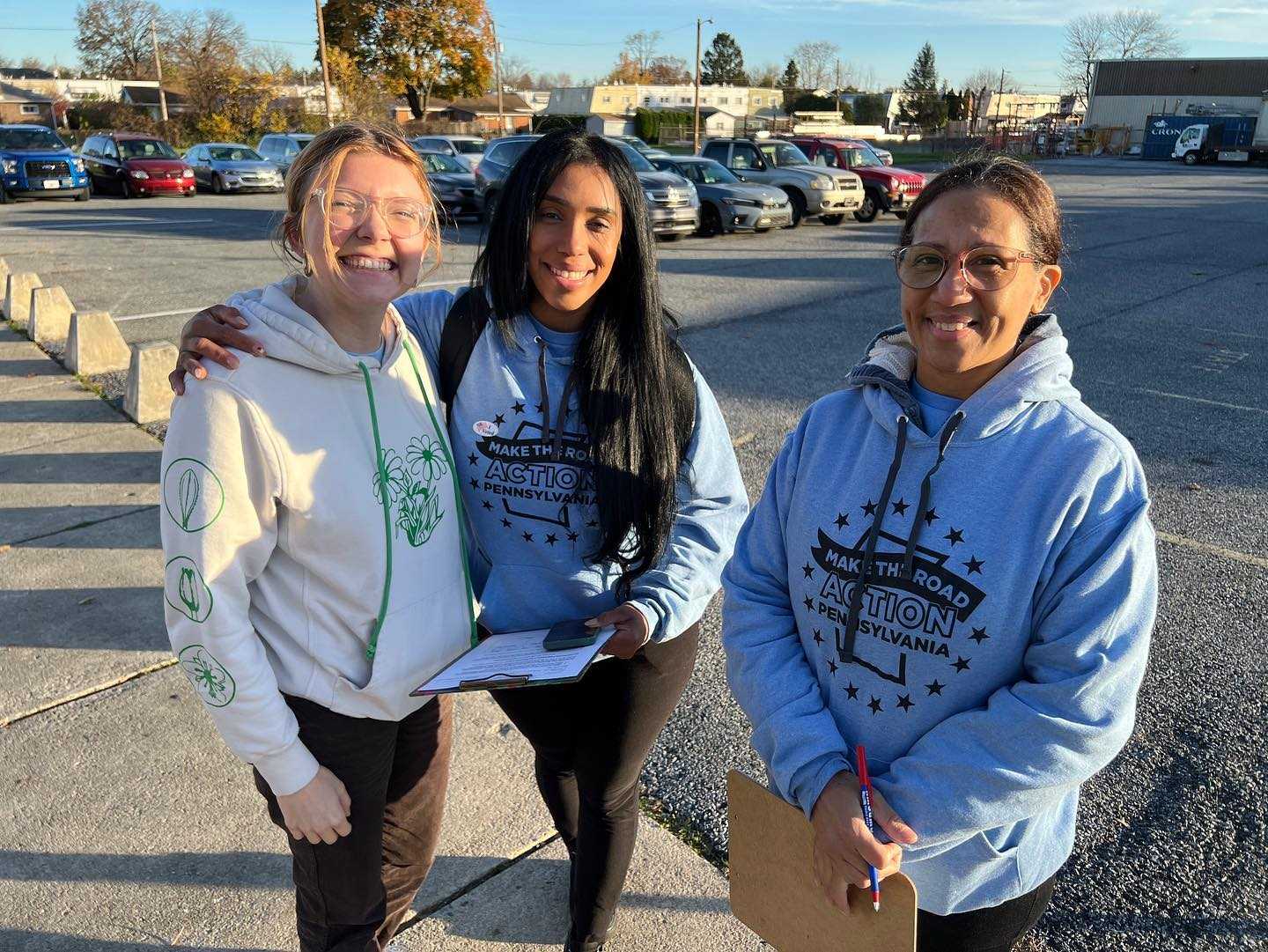
Make the Road Action PA
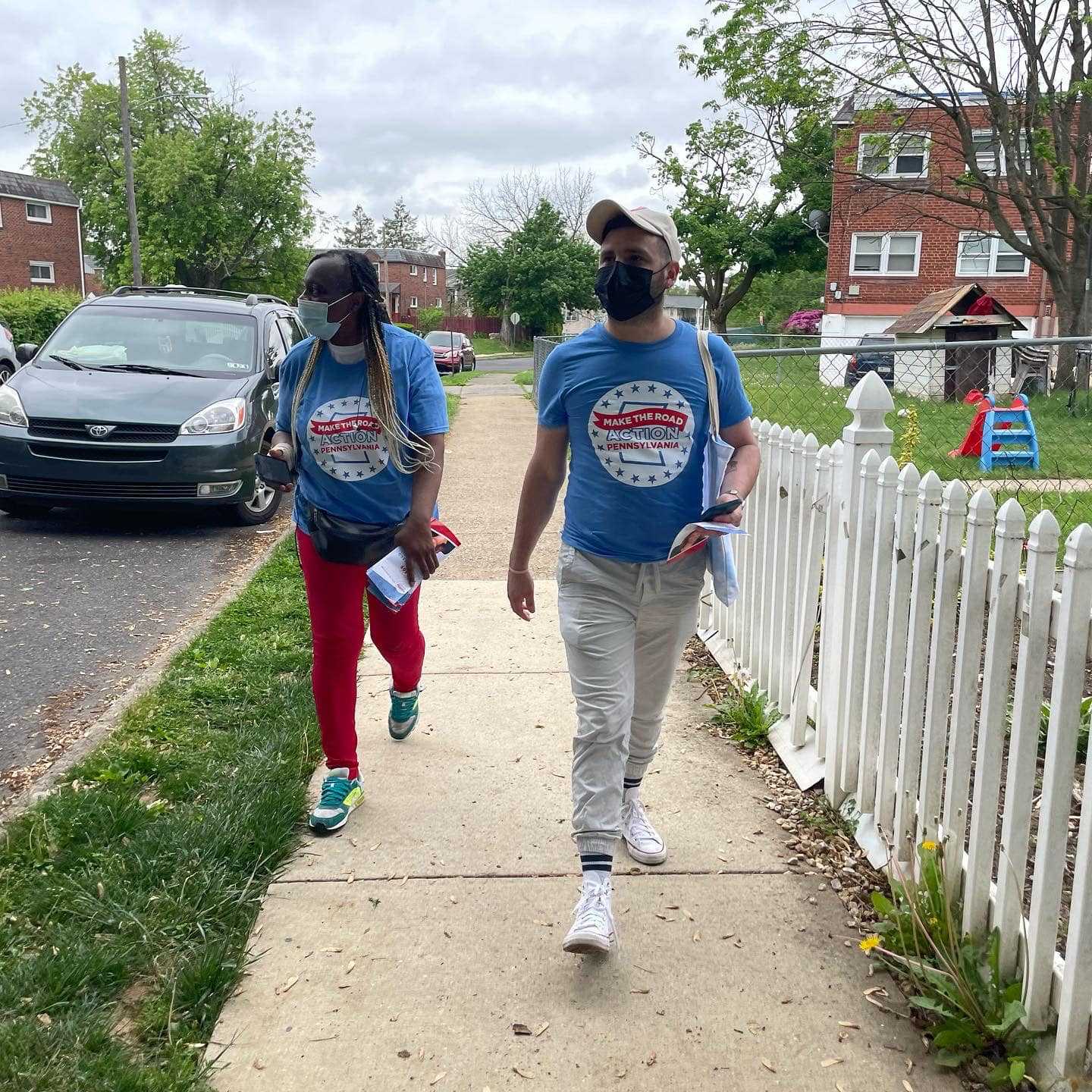
Make the Road Action PA
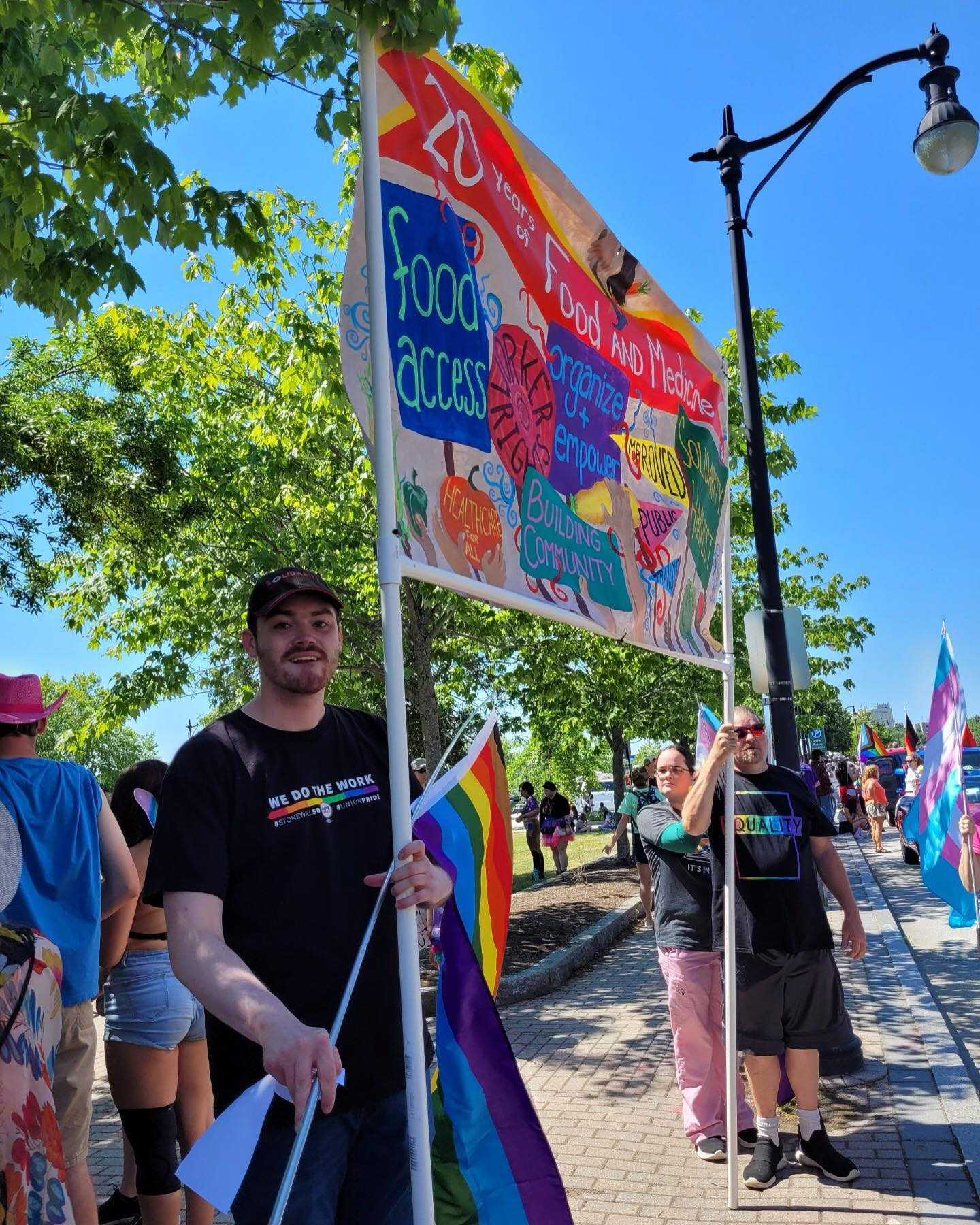
Food and Medicine
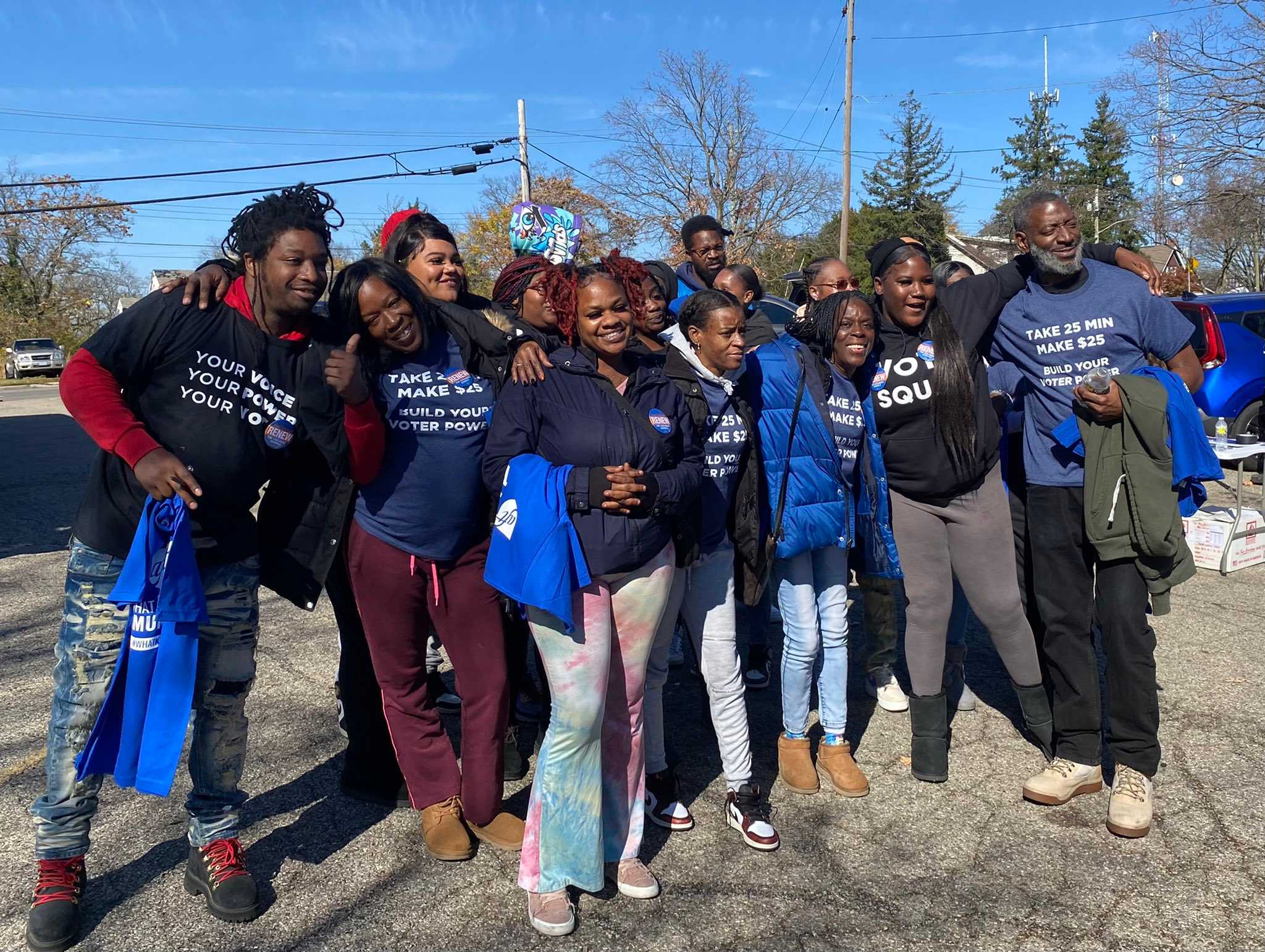
Stand Up for Ohio
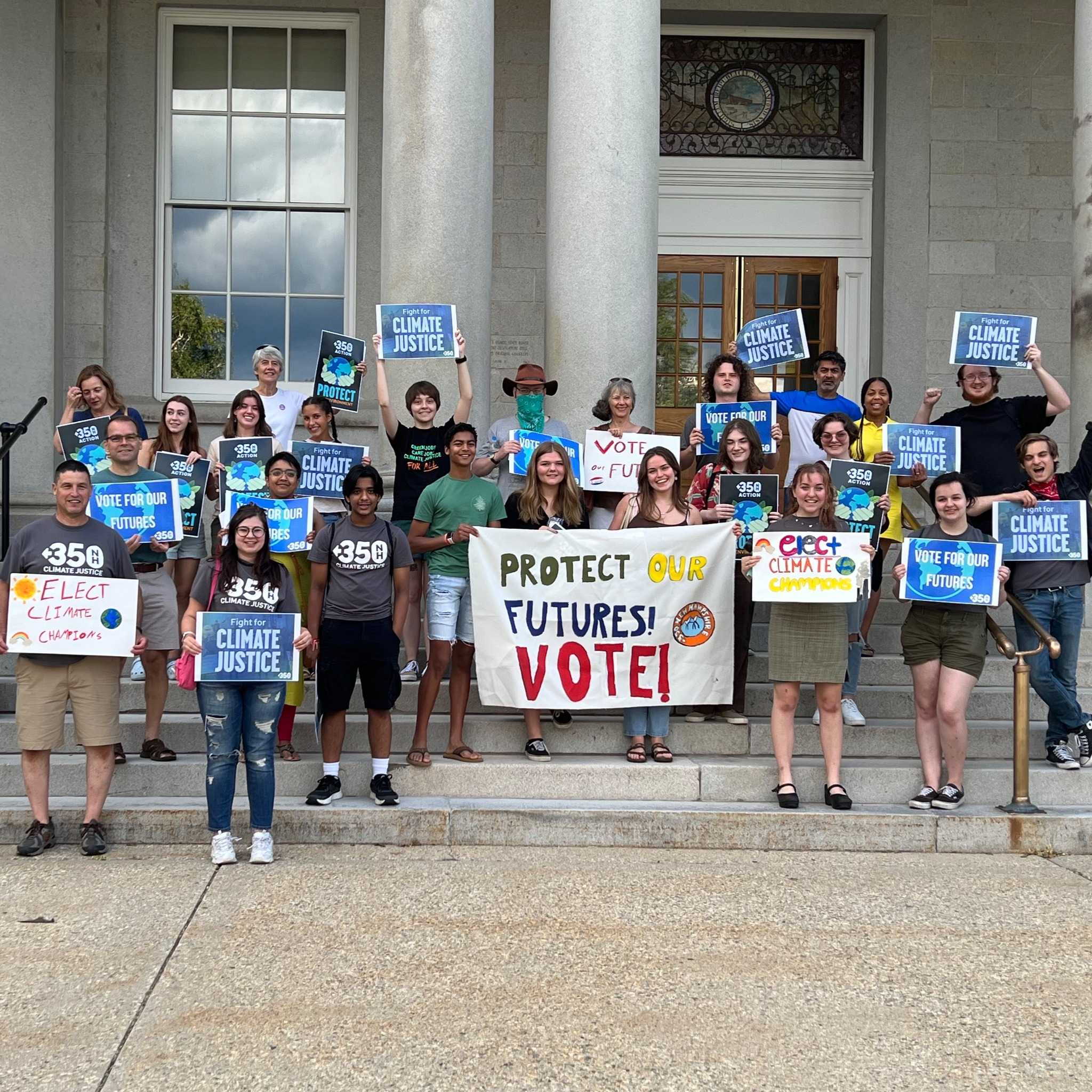
350NH Action
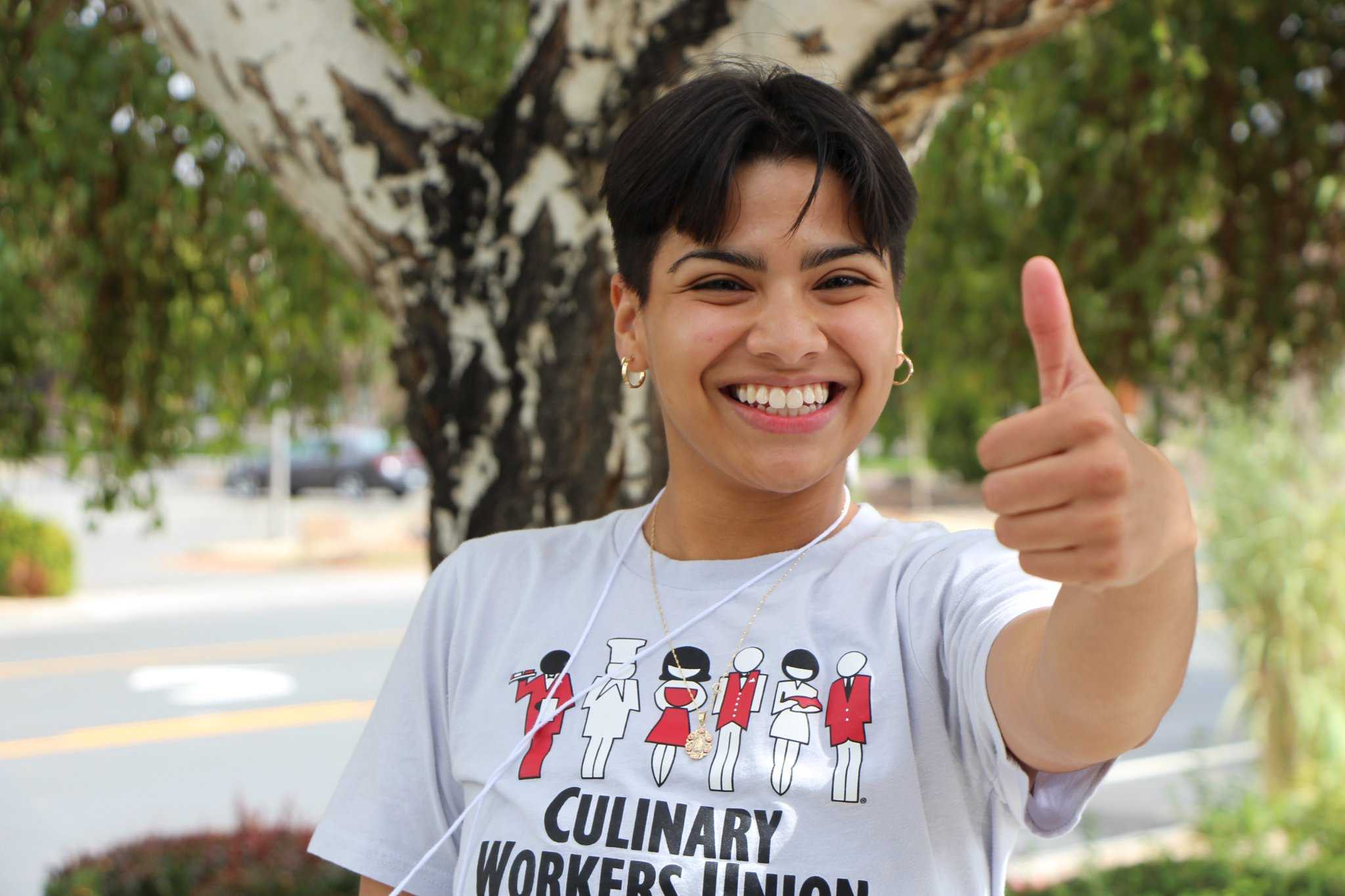
UNITE HERE - Culinary Workers Union
And 2023 is – drumroll, please – our critical year to lay the foundation for 2024. 2023 is the year when we need to invest really big to help our partners and state-based organizing infrastructure go to scale to ensure that our movement is successful in 2024. No matter who the candidates are, no matter what twists and turns lay in our path, going to scale means hiring, training, professional development, and retaining talented political staff. It means geographic expansion to new counties and constituencies within key states. It means implementing new tools and best practices for partisan voter contact. It means issue-based organizing that engages people more deeply beyond politics. It means improving election administration, preventing disenfranchisement – and calling out Republicans that try to suppress the vote.
It means the difficult work of improving our data and systems. It means experimentation, creative partnerships, and collaborative ideas. It means candidate training and recruitment. It means improving our communication – a very big job – and working with new influencers and media platforms to break through in a tough media environment. It means working on local races in “off-years” – like the Wisconsin Supreme Court race on April 4th, which could fix Wisconsin’s terrible gerrymander and draw fairer maps in advance of the 2024 elections. In short, it means deeper and more intentional investment and donor organizing than we have ever done in an “off” year to date.
All of this takes time and money. We need to get groups as much money as possible as early as we can in 2023 to allow them to dream big and work collaboratively from a place of abundance, rather than scarcity and competition. Being a good supply line, getting them the resources they need in a timely fashion is, collectively our #1 job. We should assume that 2024 will be an incredibly tough year. We should assume that we need to go all hands on deck to win the presidency, the Senate, the House, and every down-ballot race we can find that overlaps with any of them.
Less than 23 months from now, we could end up with a Republican trifecta, a Democratic trifecta, or anything in between. The future is ours to write. For starters, we should assume that we’ll need to invest big in 2023 to squeak out a victory in 2024.
The question for each of us to reflect on: How committed are we to building a Progressive Decade – or at least to preventing a Republican one? With climate, democracy and everything on the line, these are not just political questions. These are questions of our lives and legacy on this planet.
The moral of the story: We did a good job this year. A really good job. We defied the odds. We should assume 2024 is going to be an uphill battle – with everything at stake. Again. But if we win in 2024, our job should get easier. The #1 thing for us to do over the coming weeks to win 2024 – and make the 2020s a progressive decade – is to rest, recharge, celebrate, dream big dreams, and make big plans to invest our time, talents, and treasure strategically in 2023. By engaging from a place of abundance within ourselves, we can build the movement and the world that all of us need and deserve.
Happy holidays everyone!
We are so grateful for your partnership. And we have big work ahead! So rest up, have a wonderful break, and take some quiet time to feel proud of all you did to help defy the odds and make the world a better place.
May we celebrate, savor, and enjoy our sweet victories every step of the way!
– The MVP Team
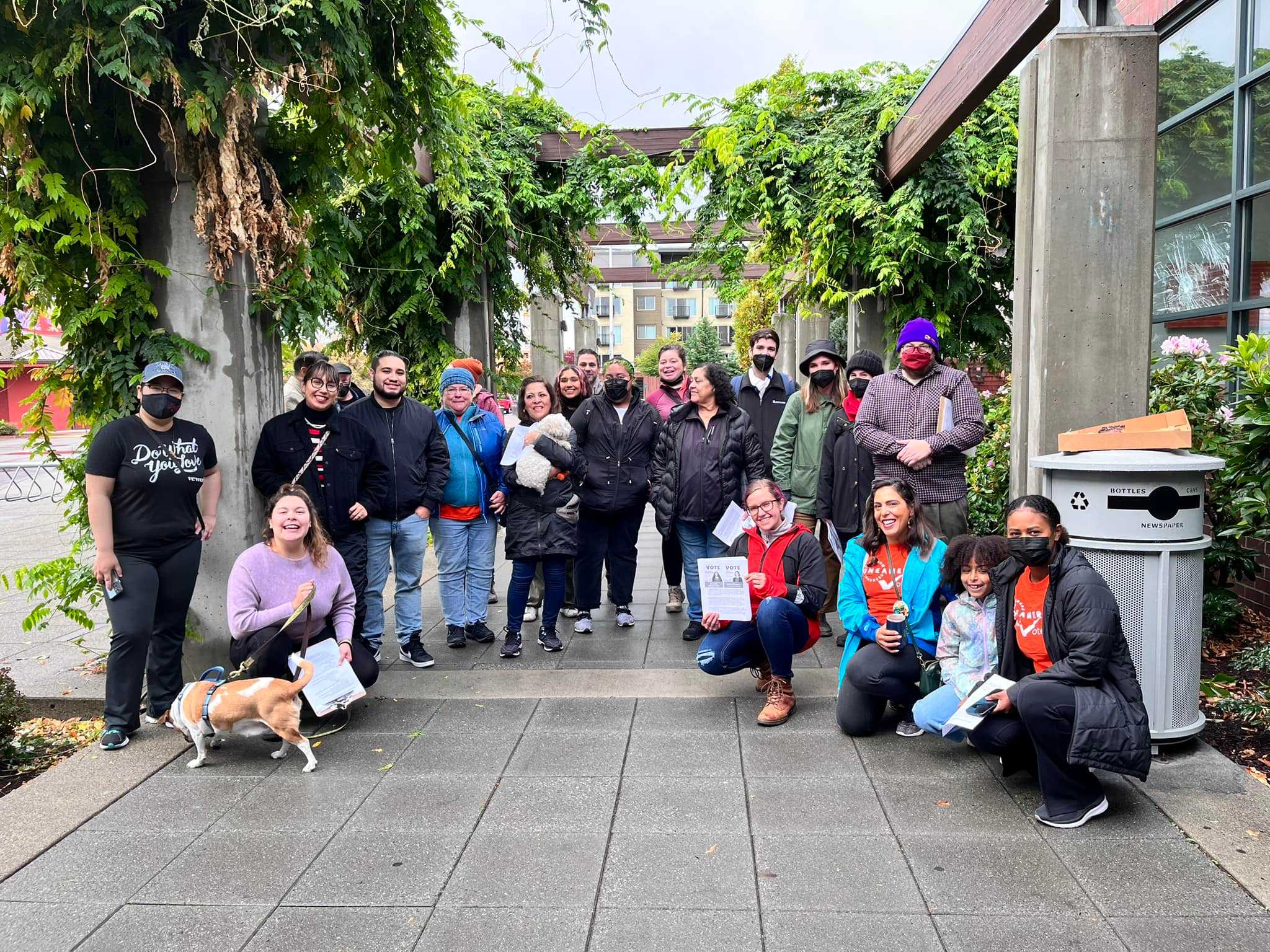
OneAmerica Votes
